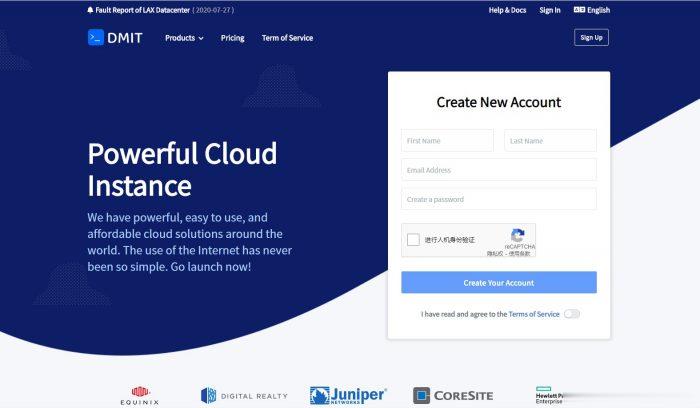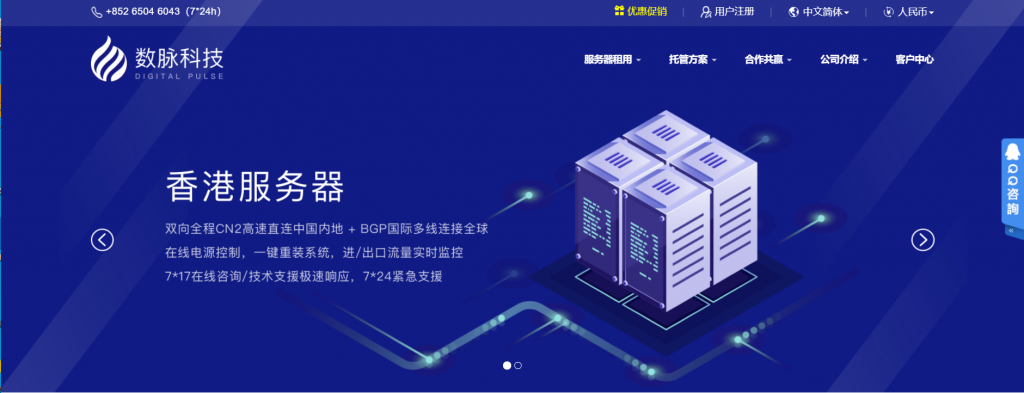endogefreehost
freehost 时间:2021-04-10 阅读:()
Ekonomickasopis,65,2017,.
3,s.
201–219201EffectsofGlobalizationandCorruptionontheOutwardFDIinOECDCountriestefanBOJNEC*–ImreFERT**1AbstractThepaperinvestigatesimpactsofglobalizationandcorruption-freeontheout-wardforeigndirectinvestment(FDI)for22OECDcountries.
Thebaselinemodelconfirmsthepositivelinkofhomeandhostcountrygrossdomesticproduct(GDP)percapitaandLinder'shypothesis,homeandhostsizeofGDPanditssimilarity,hostagglomerationofmultinationalenterprises,commoncurrencyeuro,andthenegativelinkwithgeographicaldistance.
Theresultsfortheeffectsofglobalizationandcor-ruption-freeontheoutwardFDIaremixed.
Thesignificantpositiveassociationpertainedtohomeandhostcountryeconomicglobalizationisconfirmed,butthesignificantnegativeassociationpertainedtohomeandhostcountysocialglobali-zation.
ThesignificantpositiveassociationofoutwardFDIwiththecorruption-freeinhostcountryandthesignificantnegativeassociationwiththecorruption-freeinhomecountryandforcorruptionsimilaritysuggestFDIoutflowsfromlowcorrup-tion-freehomecountrytohighcorruption-freehostcountry.
ThisfindingimpliesFDIpreferenceforcorruption-freeeconomicallyglobalizedOECDhostcountries.
Keywords:foreigndirectinvestment,globalizationmeasures,corruptionmeasure,hypothesestestingJELClassifications:C23,F21,G38,K42IntroductionDeterminantsofforeigndirectinvestments(FDIs)varywidelyamongdiffer-entstudiesfordifferentcountriesorgroupofcountries(BhaumikandGelb,2005;BojnecandFert,2014;2016).
BaharumshahandAlmasaied(2009),Reiterand*tefanBOJNEC,UniversityofPrimorska,FacultyofManagement,Cankarjeva5,SI-6104Koper,p.
p.
345,Slovenia;e-mail:stefan.
bojnec@fm-kp.
si;stefan.
bojnec@siol.
net**ImreFERT,HungarianAcademyofSciences,InstituteofEconomics,CentreforEconomicandRegionalStudies,Budarsiu.
45,H-1112Budapest,andKaposvarUniversity,Gubas.
40,H-7400,Kaposvar,Hungary;e-mail:ferto.
imre@krtk.
mta.
hu1Theauthorsgratefullyacknowledgetothejournalreviewerforconstructivecommentsandsuggestionsonthepreviousversionofthispaper.
202Steensma(2010),LejkoandBojnec(2012),amongothers,arguethatavastnumberofempiricalstudieshavegivenmixedresultsontherelationshipbetweenFDIandfactorspromotingeconomicdevelopmentandevenfortherelationshipbetweenFDIandeconomicgrowthbyindustrystructureandperformance,technologicalspillovers,andhumancapitaldevelopment.
Amongpossiblereasonsformixedresultsmightbetheuseofinadequateempiricalmethodsfortheuseofpanelstudiesvis-à-viscross-sectionalstudies,thedisregardofseveralfactorsthatareessentialforunderstandingtheroleofFDIindevelopmentintermsofcountrycharacteristicsandpolicies,andthelevelofcorruption(Wu,2006;EggerandWinner,2006;BlackburnandSarmah,2008;Bitzenes,TsitourasandVlschos,2009;Chang,2010;PeytonandBelasen,2012;Randrianarisoaetal.
,2015).
Amongsuchpoliciesarepriceandtradeliberalization,privatizationandrestructuringthathavebeenintro-ducedsincethe1990s(Brada,KutanandYigit,2006;Brada,DrabekandPerez,2012;BradaandTomik,2009).
Brouthers,GaoandMcNicol(2008)arguedonpossibletrade-offsbetweendifferenttypesofFDI:market-seeking,resource--seekingandlabour-seeking.
Market-seekingFDIaimstodirectlyserveahostcountrymarketbysubstitutingexportwithlocalproductionanddistribution(NachumandZaheer,2005;Brouthers,GaoandMcNicol,2008).
Resource-seekingFDIaimstoachievecost-minimizationinahostcountryowingfromlesscostlyorunavailableresourcesinthehomemarket.
Formarket-seekingFDItheadditionalcorruptioncostsmightbeoffsetbyincreasingpricesinmarketsthathavewealthier,lesspricesensitivecustomers.
Ontheotherhand,theadditionalcorruption'scostsmightbenoteasilyoffsetforresource-seekingFDIsuchlabourormaterials.
Whilecorruptionmightnothindermarket-seekingFDI,itmighthinderresource-seekingFDIandmarketattractivenesscannotcompensateforhighcorruptioncosts.
ThemainobjectiveofthispaperistoinvestigatedeterminantsofoutwardFDIatthecountrylevels.
Morespecifically,wefocusontheeffectsofglobalizationandcontrolofcorruptiononoutwardFDIflowusingpaneldatafor22Organisa-tionforEconomicCooperationandDevelopment(OECD-22)countries.
KeycontributionofthepaperisoninvestigationofpossiblepresenceofimportantlinkbetweenglobalizationandcorruptioneffectsandlevelofFDIoutflows.
Therefore,thepaperconcentratesonthefollowingtworesearchquestions:first,doesgreaterglobalizationofhomeandhostcountriesalsoenhancesgreaterout-wardFDIflows,andsecond,doesahomeandhostcountrydegreeofcorruptionislessormoreattractiveforoutwardFDIaftercontrollingforotherdeterminantsofFDIlocationTherestofthepaperisorganizedasfollows.
Thenext,section1presentsliteraturereviewfocusingondeterminantsofoutwardFDIsintheinteractionwithpossibleeffectsofthebaselinemodelexplanatoryvariables,andparticularly203augmentedmodelwithglobalizationanddegreeofcorruptionexplanatoryvaria-bles.
Section2describesmethodologyanddataused.
Section3presentsdescrip-tivestatisticsandcorrelationanalysis.
Section4presentsmaineconometricresultsinthefoursteps:forthebaselinemodelspecificationvariables,augmentedmodelwithglobalizationanddegreeofcorruptionexplanatoryvariablesinthehomecountry,augmentedmodelwithglobalizationandcorruptionexplanatoryvaria-blesinthehostcountry,andaugmentedmodelwithglobalizationanddegreeofcorruptionsimilarityexplanatoryvariablesbetweenthehomeandhostcountries.
Section5derivesmainfindings.
Finally,lastsectionconcludesandprovidespossibledirectionsforresearchinfuture.
1.
LiteratureReviewandHypothesesDevelopmentPreviousresearchidentifiesalargesetofexplanatoryvariableswhichmaybeimportanttoexplainFDIflowswithpolicyimplications(Chakrabarti,2001;BradaandTomik,2009;BlonigenandPiger,2011;zkan-Günay,2011;Eicher,HelfmanandLenkoski,2011;BojnecandFert,2014;2016).
Themodelspeci-ficationofexplanatoryvariablesisusuallybasedondifferenttheoreticalframe-workandpriorempiricalstudiesimplyinguncertaintyonmodelspecifications.
Thegravitymodelshavebecomepopulartoolinempiricalanalysisofinter-nationaltradeandinternationalizationmodelling(AndersonandvanWincoop,2003),includingformodellingofFDIflows(Aggarwal,KearneyandLucey,2012).
WithinthegravityframeworkitisexpectedthatoutwardFDIfromhomecountryisnegativelyassociatedwithgeographicaldistancebetweenthehomeandhostcountriesandpositivelyassociatedwiththeeconomicsizeofthehomeandhostcountries.
TheeconomicsizeofthecountryisoftenmeasuredbythesizeofGDP.
Moreover,theGDPsimilarityisexpectedtoaffectthelevelofFDIflowspositively(BergstrandandEgger,2007).
Laterstudieshaveintroducedsomeadditionaltradecostsvariablestothegra-vitymodelincludinglanguagesimilarity,havingacommonborder,havingafreetradeagreementorhavingdirectaccessiontothesea(Cuervo-Cazurra,2008).
TheattractivenessfortheoutwardFDImightbethepresenceofagglomerationofmultinationalenterprisesinthehostcountries.
ThelattereffectforhostcountryFDIopennessisoftenproxiedbytheratioofinwardFDIflowstothesizeofGDPinhostcountry.
Finally,theroleoftheEuropeanMonetaryUnion(EMU)ontheoutwardFDIisexplainedbytheeurointroductioninsomeoftheEUcountries(Brouwer,PaapandViaene,2008).
Therefore,wesetthefollowingfourhypotheses(H),whichareusedtotestthevalidityofthebaselinemodelspecification:204H1:OutwardFDIfromhometohostcountryispositivelyassociatedwiththeeconomicsizeofthehomeandhostcountry.
H2:OutwardFDIfromhometohostcountryispositivelyassociatedwiththeeconomicsizesimilaritybetweenthehomeandhostcountry.
H3:OutwardFDIfromhometohostcountryispositivelyassociatedwithhomeandhostcountriesproximityincommonborder,language,acommoncurrency,andhostcountryopennesswithagglomerationofmultinationalenterprises.
H4:OutwardFDIfromhometohostcountryisnegativelyassociatedwiththedistancebetweenhomeandhostcountriescapitals,andlandlockedstatusofhomecountry.
TheusualwayforcontrollingincomelevelofhomeandhostcountriesastheirlevelofeconomicdevelopmentincludestheGDPpercapitameasureinthebaselinemodelspecifications.
Asrelevantcontrolvariableinthebaselinere-gressionmodeloftherobustnesscheckhasbeenjustifiedLinderhypothesisforFDI(Fajgelbaum,GrossmanandHelpman,2015).
Itiscapturedbydifferenceinlog-GDPpercapitabetweenhomeandhostcountry.
Therefore,wesetthefollowingadditionaltwohypotheses(H),whichareusedtotestthevalidityofthebaselinemodelspecification:H5:OutwardFDIfromhometohostcountryispositivelyassociatedwiththelevelofeconomicdevelopmentofthehomeandhostcountry.
H6:OutwardFDIfromhometohostcountryispositivelyassociatedwiththedifferenceintheleveleconomicdevelopmentofthehomeandhostcountry.
Inadditiontothesebaselineexplanatoryvariables,thereisagrowingstreamofresearchontheroleofavarietyofglobalizationindicatorsandthecontrolofcorruptionasexplanatoryvariablesforthecomplexrelationshipwiththeoutwardFDI,whichhasgivenmixedresults(Lambsdorff,2003;Mauro,1995;AnokhinandSchulze,2009;Cuervo-Cazurra,2008;Perez,BradaandDrabek,2012).
Whilethecountry'seconomic,socialandpoliticalstabilityandglobalizationlevelcanhaveunambiguouseffectsontheoutwardFDItheycaninassociationwithcorruption-freeenablingenvironmentencourageoutwardFDIflowsfromhometohostcountry(Desai,1997;TulugOk,2004;Brada,KutanandYigit,2006;Nakamura,OlssonandLonnborg,2012;BojnecandFert,2016).
However,theglobalizationcanhavepositiveeffectsoneconomicgrowthincountrieswithaweakinstitutionsandhigherdegreeofcorruption,andviceversaintheothers(Houston,2007;Jiménez,2011).
Inrelationstolevelofglobalization,wesettheH7inthefollowingway:H7:OutwardFDIfromhometohostcountryispositivelyassociatedwithhomeandhostcountriesglobalization.
205Thetheoreticaljustificationofanexpectedpositivelinkbetweenlevelofcor-ruption-free,positivelinkbetweencorruption-freesimilarityandunambiguouslinkbetweenglobalizationandsizeofFDIoutwardcanbeexplainedbytheeffectsofinstitutionalqualityondecisionmakingprocessofafirm(Chang,2015)andpre-viousempiricalstudiesfocusingspecificallyoncorruptionaspartofinstitutionalsettinginhomeandhostcountriesandglobalizationaspectsofFDIflows.
Countrieswithbetterinstitutionsandcorruption-freearemorelikelytoattractmorepercapitaFDIthanacountrywithpoorinstitutionsandimportantcorruption(Stoian,2013).
Corruptionincreasesagencyandtransactionscosts,anderodesthepotentialvalueofthereturnsoftheopportunity,whilethecontrolofcorruptionandgreatertrans-parencymightincreasethelikelihoodthatprospectiveentrepreneurorinnovatormightbeabletoachievehigherlevelsofentrepreneurialandinnovativeactivity(LaffontandTirole,1993;DrabekandWarren,2002;Cuervo-Cazurra,2008;AnokhinandSchulze,2009;PavelandRistiová,2015).
ThedegreeofcorruptioninhomeandhostcountrieshasbeenspecifiedasanadditionalfactoramongthedeterminantsofFDIlocation.
Corruptionaspayingbribestocorruptgovernmentbureaucratsinreturnforsomegainsisgenerallyviewedasanadditionalcostofdoingbusinessorataxonprofits,whichdecreasestheexpectedprofitabilityofinvestmentprojects(Al-Sadig,2009).
TheempiricalliteratureontheeffectsofthehomeandhostcountriesdegreeofcorruptiononoutwardFDIflowshasfoundthemixedresultsofalinkbetweenacomplexphenomenonofdegreeofcorruptionandoutwardFDIflows(Perez,BradaandDrabek,2012).
Corruptionmightbeacon-sequenceofeconomicandnoneconomicvariablesandthustreatedasanendoge-nousvariable.
Institutionalqualityanddegreeofcorruptionhavebeendefinedindifferentways.
Thedegreeofcorruptioncannegativelyaffectthecostsofinvestmentoperationandcostsofdoingbusiness(Mauro,1995).
TherelationshipbetweendegreeofcorruptionandFDIcanbeofamixedsignorinsignificantinaspiteofgeneralbelievethatthedegreeofcorruptionisinverselyassociatedwithpercapitaFDIflowsandthatcountrieswithalowdegreeofcorruptionattractmorepercapitaFDI(AbedandDavoodi,2000;Akay,2001;Al-Sadig,2009).
WesettheH8inrelationtothedegreeofcorruption-freeinthefollowingway:H8:OutwardFDIfromhometohostcountryispositivelyassociatedwithhomeandhostcountrieslevelofcorruption-free.
Asameasureofcorruption-freeisscaledinversely,apositivesignofassoci-ationbetweenoutwardFDIfromhometohostcountrywiththelevelofcorrup-tion-freeisexpected:morecorruption-freeisacountry,agreaterFDIflowsareexpected.
BecauseweanalysedevelopedOECDcountries,wealsoexpectthathostcountrycorruption-freeencouragesinwardFDIsintohostcountryoroutwardFDIfromhometohostcountry.
Ontheotherhand,importantdeterminantforFDI206flowscanbealsohomeandhostcountriesglobalizationanddegreeofcorruptionsimilarityattheirdifferentglobalizationanddegreeofcorruptionlevels.
HabibandZurawicki(2002)suggestedthatthegreatertheabsolutedifferenceinthedegreeofcorruptionbetweenthehomeandhostcountries,thesmallertheFDIinflowsforthehostcountry.
ThissuggestsontheimportanceofglobalizationanddegreeofcorruptionsimilarityinabsolutedifferencebetweentheglobalizationanddegreeofcorruptioninthehomeandthehostcountriesforbilateralFDIflows.
Therefore,wesetthefollowingH9andH10:H9:OutwardFDIispositivelyassociatedwithhomeandhostcountrieslevelofglobalizationsimilarity.
H10:OutwardFDIispositivelyassociatedwithhomeandhostcountrydegreeofcorruption-freesimilarity.
Thedegreeofcorruptionmightbecorrelatedwithothercountrycharacteristicssuchasthelevelofeconomicdevelopment,qualityofinstitutions,lackofcom-petition,andculturalvalues.
Ontheotherhand,thecorruption-freesimilaritymightalsoencourageoutwardFDIinawaythatcorruptcountriestendtoattractFDIfromothercorruptcountries,andlesscorruptcountriestendtoattractFDIfromlesscorruptcountries(HellmanandKaufmann,2004;Cuervo-Cazurra,2008;Perez,BradaandDrabek,2012).
2.
MethodologyandDataThereisnoagreementbetweenscholarshowtoestimateempiricallybilateralFDIflows(SarisoyGuerin,2006;LaneandMilesi-Ferretti,2008;DaudeandFratzscher,2008).
Standardapproachistheapplicationofgravitytype'smodel(Aggarwal,KearneyandLucey,2012).
BergstrandandEgger(2007)providetheoreticalfoundationfortheuseofgravitymodeltoanalyzeFDIpatterns.
InthispaperweemploythefollowingbaselineversionofFDImodel:outwardFDIijt=α0+α1lnGDP/capitait+α2lnGDP/capitajt++α3lnGDP/capitaijtdifference+α4lnGDPit+α5lnGDPjt+α6lnGDPijtsimilarity++α7lnOpennessjt+α8lnDistanceij+α9Landlockedi+α10Commonborderij++α11Languageij+α12Euroijt+εijt(1)whereFDI–levelofabilateralFDIflowsbetweenhomeiandhostjcountriesattimet,GDPpercapitaiandGDPpercapitaj–levelofeconomicdevelopmentofhomeiandhostjcountries,GDPiandGDPj–marketsizeofhomeiandhostjcountries,GDPpercapitaijdifference–thedifferencebetweenthelnGDPpercapitavaluesforhomeiandhostjcountries.
207TheGDPsimilarityismeasuredas2ijijGDPGDPGDPGDP+(BergstrandandEgger,2007).
TheOpennessjmeasurestheagglomerationeffectofmultinationalenter-prises,whichisdefinedbyinwardFDI/GDPjinhostcountryj.
Tradecostsvari-ablesare:Distanceforthebilateraldistancebetweenpartners,andfourdummyvariablesincludingLandlockedifhomecountryiisalandlockingcountry,Commonborderifhomeandhostcountrieshaveacommonborder,Languageifthecommonlanguageisusedinhomeandhostcountries,andEuroifbothhomeandhostcountriesarememberofEuroareaattimet.
Finally,εijtistheerrorterm.
ThebilateralFDIdata,GDPpercapitadataandGDPdataareexpressedinU.
S.
dollarsandbasedontheOECDInternationalDirectInvestmentStatisticsandOECDMainEconomicIndicators.
TradecostsvariablesareobtainedfromCEPIIdatabase.
Sinceourinterestfocusesonthepotentialimpactofglobalizationandcorrup-tion-freeonoutwardFDIflowsweaugmentthebaselinemodelinequation(1)withproxiesforexplanatoryglobalizationandcorruption-freevariables.
WeapplyKOFIndexofGlobalization(http://globalization.
kof.
ethz.
ch/),whichmea-suresthethreemaindimensionsofglobalization:economic,socialandpolitical(Dreher,2006).
Highervalueofindicesimplieshigherlevelofglobalization.
Finally,tomeasureofthedegreeofcorruptionweusetheCorruptionPerceptionsIndex(CPI)fromtheTransparencyInternational(Lambsdorff,2000).
TheCorruptionPerceptionsIndexasanaggregateindicatorcomparesandrankscountriesandterritoriesaccordingtotheirperceivedlevelsofpublicsectorcorruption.
TheCorruptionPer-ceptionsIndexrangesbetween10(highlycorruption-free)and0(highlycorrupt).
Theaugmentedmodelforhomecountryiisdefinedasfollows:outwardFDIijt=α0+α1lnGDP/capitait+α2lnGDP/capitajt++α3lnGDP/capitaijtdifference+α4lnGDPit+α5lnGDPjt+α6lnGDPijtsimilarity++α7lnOpennessjt+α8lnDistanceij+α9Landlockedi+α10Commonborderij++α11Languageij+α12Euroijt+α13EconomicGlobalizationit+α14SocialGlobalizationit++α15PoliticalGlobalizationit+α16Corruption-freeit+εijt(2)whereareaddedvariouselementsofglobalizationandcorruption-freeperceptionindicesofhomecountryi.
Inaddition,toincludevariouselementsofglobalizationandcorruption-freeperceptionindicesalsoofhostjcountry,theaugmentedmodelspecificationwiththehostcountryglobalizationandcorruption-freecharacteristicsisthefollowing:208outwardFDIijt=α0+α1lnGDP/capitait+α2lnGDP/capitajt++α3lnGDP/capitaijtdifference+α4lnGDPit+α5lnGDPjt+α6lnGDPijtsimilarity++α7lnOpennessjt+α8lnDistanceij+α9Landlockedi+α10Commonborderij++α11Languageij+α12Euroijt+α13EconomicGlobalizationjt+α14SocialGlobalizationjt++α15PoliticalGlobalizationjt+α16Corruption-freejt+εijt(3)Finally,theaugmentedmodelspecificationwiththehomeandhostcountriesglobalizationanddegreeofcorruptionsimilarityisspecifiedinthefollowingway:outwardFDIijt=α0+α1lnGDP/capitait+α2lnGDP/capitajt++α3lnGDP/capitaijtdifference+α4lnGDPit+α5lnGDPjt+6lnGDPijtsimilarity++α7lnOpennessjt+α8lnDistanceij+α9Landlockedi+α10Commonborderij++α11Languageij+α12Euroijt+α13EconomicGlobalizationSimilarityijt++α14SocialGlobalizationSimilarityijt+α15PoliticalGlobalizationsimilarityijt++α16Corruption-freesimilarityijt+εijt(4)TheeconometricmodelisspecifiedwiththesimilarityintheglobalizationandcorruptionvariablesbythebilateralpairsoftheOECD-22countries.
Theglob-alizationanddegreeofcorruptionsimilarityisdefinedonthebasisoftheabsolutedifferencebetweenthehomeandhostcountryvariables,e.
g.
,separatelyforthreedifferentglobalizationmeasuresandfordegreeofcorruptionvariable.
Thecom-putationofthemeasureofsimilaritybetweenhomeandhostcountriesusesabsolutedifference(e.
g.
CezarandEscobar,2015).
ThedatausedcoverstheOECD-22:Austria,Belgium,theCzechRepublic,Den-mark,Finland,France,Germany,Greece,Hungary,Ireland,Italy,Luxembourg,theNetherlands,Norway,Poland,Portugal,Slovakia,Spain,Sweden,Switzerland,Turkey,andtheUnitedKingdom.
ExceptforNorway,SwitzerlandandTurkey,thesearetheEuropeanUnion(EU)OECDcountries.
Fourofthem–theCzechRepublic,Hungary,PolandandSlovakia–arefromCentralEuropeanVisegrádregion(RadloandSass,2012).
Theanalysedperiodisbetween2004and2008,whichpartlycoversthebe-ginningofthemostrecentfinancialandeconomiccrisis.
Therelativeshort5-yearstimespanturnstheanalysisintomorecross-sectionaloriented,ratherthananinvestigationofanatureofdynamicunderlyingprocesses(e.
g.
Skabic,2015;Podda,2016).
Duetocross-sectionaldependencethebaselineandaugmentedmodelsareestimatedbythepanel-correctedstandarderrormodels.
3.
DescriptiveStatisticsandCorrelationAnalysisTable1presentssummarystatisticsoftherestricteddata-sampleforthetime--variantandtime-invariantspecifiedvariables,whichareusedintheeconometricanalysis.
Thenumberofobservations(2310=462x5years,where462=22209countriesx21variables)isforabalancedpanel.
Inthecaseoftime-invariantvariablestheconstantvaluesaretakenforeachoftheanalysedyears.
AtthefirstglancethemostconsiderabledifferencesbetweentheanalysedOECD-22countriesandovertheanalysedyearsareseenfromthedifferentialbetweenminimumandmaximumvaluesfortheoutwardFDIandthemeasureofdegreeofcorruption.
DifferencesbetweenthecountriesarealsointhecaseofGDPpercapitaaslevelofeconomicdevelopmentandGDPasthesizeoftheeconomy.
Inaddition,anativetaughtLanguagesimilaritybetweentheOECD-22countriesislowerthanthenumberofLandlockedcountries(Austria,theCzechRepublic,Hungary,Luxembourg,Slovakia,andSwitzerland)ortheEurocoun-tries.
DegreeofSocialGlobalizationisaslightlylowerthanEconomicGlobali-zationandlowerthanPoliticalGlobalization.
Table1SummaryStatisticsofVariablesVariableNumberofobservationsMeanvalueStd.
dev.
MinimumMaximumOutwardFDIij23101290.
305534.
50–48323.
30106849.
40lnGDP/capitai231010.
290.
419.
2311.
35lnGDP/capitaijdifference23100.
450.
360.
0011.
86lnGDPi23105.
961.
073.
397.
98lnGDPsimilarityij23100.
170.
070.
010.
25lnOpennesj23100.
440.
51–0.
471.
80lnDistanceij23107.
000.
664.
098.
12Landlockedi23100.
270.
4501Commonborderij23100.
140.
3401Languageij23100.
080.
2601Euroij23100.
290.
4501Economicglobalizationi231083.
318.
2054.
2598.
69Socialglobalizationi231082.
548.
3748.
3294.
58Politicalglobalizationi231090.
987.
5960.
2098.
43Corruption-freei23107.
031.
923.
029.
07Economicglobalizationsimilarityij23109.
167.
500.
0338.
86Socialglobalizationsimilarityij23108.
348.
760.
0044.
77Politicalglobalizationsimilarityij23107.
178.
160.
0337.
14Corruption-freesimilarityij23102.
251.
6306.
50Source:Owncalculations.
Figure1presentsthecross-countrymeanvaluesover5yearsofindicesofEconomic,SocialandPoliticalGlobalizations,whereGlobalizationindicesaresortbyEconomicGlobalizationindices.
Theresultsconfirmeddifferentialsbe-tweentheanalysedOECD-22countries.
Thelowervalueimplieslowerlevelofglobalization.
EconomicandSocialGlobalizationisthelowestforTurkey.
Po-liticalGlobalizationisonaveragehigher:itisthelowestfortheUnitedKingdomandparticularlyishighforFranceandAustria.
EconomicGlobalizationisthehighestforLuxembourgandSocialGlobalizationforSwitzerland.
210Figure1TheMeanValuesofGlobalizationandDegreeofCorruptionPerceptionIndices,2004–2008Source:Owncalculations.
Highervalueofglobalizationindicesanddegreeofcorruptionimplieshigherlevelofglobalizationandhigherdegreeofcorruption-free.
NoneoftheanalysedOECD-22countriesishighlycorrupt,butrelativelymorecorruptionisidentifiedinTurkey,Greece,Italy,Polandandotherpost-communistanalysedOECDcountries(Slovakia,theCzechRepublicandHungary).
ThisfindingisconsistentwithPavelandRistiová(2015).
Ontheotherhand,morecorruption-freeareforFinland,Denmark,SwedenandSwitzerland.
Thecorrelationanalysisbasedfromapooleddataconfirmedmodestcorrelationbetweentheanalysedpairsofvaria-bles(Table2).
Thepartialcorrelationcoefficientsaregreaterorcloseto0.
5be-tweenthefollowingpairsofvariables:positivecorrelationsbetweenlnGDPpercapitaanddegreeofCorruption-free,lnGDPofhomecountryandCorruption--freesimilarity,EconomicandSocialGlobalization,degreeofCorruption-freeandEconomicGlobalization,degreeofCorruption-freeandSocialGlobalization,lnGDPpercapitaandEconomicGlobalization,lnGDPpercapitaandSocialGlobalization,CommonborderandLanguage;negativecorrelationsbetweenlnGDPofhomecountryanditsLandlockedstatus,lnGDPofhomecountryandEconomicGlobalization,lnDistanceandCommonborder,SocialGlobalizationofhomecountryandSocialGlobalizationsimilarity,PoliticalGlobalizationofhomecountryandPoliticalGlobalizationsimilarity.
211Table2CorrelationCoefficientsbetweenPairsofVariablesBasedfromPooledDataoutwardFDIijlnGDP/capitailnGDP/capitaijsimilaritylnGDPilnGDPsimilarityijlnOpennesjlnDistanceijLandlockediCommonborderijLanguageijEuroijEconomicglobalizationiSocialglobalizationiPoliticalglobalizationiCorruption--freeiOutwardFDIij1.
00lnGDP/capitai0.
121.
00lnGDP/capitaijdifference–0.
06–0.
111.
00lnGDPi0.
11–0.
20–0.
231.
00lnGDPsimilarityij–0.
08–0.
13–0.
12–0.
111.
00lnOpennesj0.
050.
050.
140.
060.
0031.
00lnDistanceij–0.
22–0.
140.
130.
030.
11–0.
251.
00Landlockedi–0.
030.
020.
16–0.
54–0.
03–0.
03–0.
241.
00Commonborderij0.
130.
03–0.
08–0.
150.
070.
04–0.
610.
071.
00Languageij0.
160.
15–0.
14–0.
002–0.
130.
09–0.
450.
100.
551.
00Euroij0.
100.
23–0.
260.
01–0.
100.
010.
01–0.
150.
070.
161.
00Economicglobalizationi0.
050.
53–0.
15–0.
49–0.
01–0.
04–0.
240.
340.
340.
120.
191.
00Socialglobalizationi0.
060.
53–0.
32–0.
090.
02–0.
02–0.
260.
220.
220.
160.
090.
681.
00Politicalglobalizationi–0.
03–0.
25–0.
240.
320.
260.
060.
09–0.
29–0.
29–0.
010.
10–0.
230.
041.
00Corruption-freei0.
060.
77–0.
22–0.
09–0.
02–0.
00–0.
12–0.
10–0.
100.
130.
160.
530.
66–0.
071.
00Economicglobalizationijsimilarity–0.
04–0.
19–0.
110.
430.
05–0.
110.
25–0.
12–0.
12–0.
10–0.
07–0.
35–0.
47–0.
03–0.
25Socialglobalizationijsimilarity–0.
07–0.
270.
110.
370.
09–0.
190.
260.
06–0.
10–0.
09–0.
12–0.
42–0.
490.
06–0.
25PoliticalGlobalizationijsimilarity0.
100.
22–0.
410.
24–0.
180.
10–0.
200.
15–0.
020.
07–0.
010.
170.
05–0.
580.
10Corruption-freeijsimilarity0.
13–0.
230.
110.
53–0.
04–0.
090.
310.
01–0.
18–0.
21–0.
17–0.
17–0.
190.
02–0.
19Source:Owncalculations.
2124.
EconometricResultsTheeconometricresultsarepresentedinfourstepsfrombaselinemodel,augmentedmodelwithglobalizationandcorruption-freeregressorsforthehomecountry,augmentedmodelwithglobalizationandcorruption-freeregressorsforthehostcountry,andmodelwithglobalizationandcorruptionsimilarity.
4.
1.
BaselineModelTable3BaselineandAugmentedModelsforOutwardFDIijVariable(1)(2)(3)(4)lnGDP/capitai1.
190***1.
653***1.
281***1.
030***lnGDP/capitaj1.
052***1.
086***0.
5680.
887***lnGDP/capitaijdifference0.
995***0.
893***1.
001***1.
183***lnGDPi0.
670***0.
823***0.
692***0.
705***lnGDPj0.
640***0.
644***0.
789***0.
679***lnGDPsimilarityij1.
6302.
480*2.
5233.
389**lnOpennesj0.
281*0.
303*0.
1240.
307**lnDistanceij–1.
394***–1.
322***–1.
352***–1.
249***Commonborderij–0.
684*–0.
623*–0.
602*–0.
569Languageij1.
0201.
1061.
0681.
043Landlocki0.
000–0.
1470.
0240.
021Euroij0.
627***0.
501**0.
568***0.
669***Economicglobalizationi0.
045***Socialglobalizationi–0.
019*Politicalglobalizationi–0.
014Corruption-freei–0.
182***Economicglobalizationj0.
049**Socialglobalizationj–0.
039***Politicalglobalizationj–0.
024Corruption-freej0.
123***Economicglobalizationsimilarityij0.
010Socialglobalizationsimilarityij–0.
010Politicalglobalizationsimilarityij0.
026Corruptionsimilarityij–0.
121***Constant–21.
140***–27.
405***–18.
060***–19.
603***N2310231023102310R20.
1090.
1140.
1150.
113Note:Levelofsignificance:***1%,**5%and*10%.
Source:Ownestimations.
Regressionequation(1)inTable3presentstheestimatedeconometricresultsofthebaselinemodelfortheoutwardFDI.
TheoutwardFDIissignificantlypositivelyassociatedwithhostandhomecountryGDPpercapitaaswellaswiththeirGDPpercapitadifference.
ThelatterconfirmedthevalidityofLinderhy-pothesis.
TheregressioncoefficientswerefoundtobesignificantlypositivelyassociatedforthehomeandhostGDPs,butnotsignificantfortheirGDPsimi-larity.
Inaddition,theregressioncoefficientissignificantlypositivefortheEuroadoptionsimilarityandtoalesserextentforthehostcountryOpenness,butnot213significantfortheLanguagesimilaritybetweenthepairsoftheOECD-22coun-tries.
Ontheotherhand,theoutwardFDIwerefoundtobesignificantlynegativelyassociatedwiththegeographicalDistancebetweenthecapitalsintheOECD-22countriesandtoalesserextentforCommonborder,butinsignificantfortheLandlockedgeographicalhomecountryposition.
TheseresultsareconsistentwiththesetofH1,H4,H5,H6andpartlyH3,butnotwiththeH2.
4.
2.
AugmentedModelwithGlobalizationandCorruption-freeRegressorsfortheHomeCountryInregressionequation(2)inTable3thebaselinemodelvariablesbythesignsandstatisticalsignificanceremainedratherstableandthusrobustintheaug-mentedspecifiedmodelswiththeglobalizationandcorruption-freeregressorsforthehomecountry.
TheregressioncoefficientforhomecountryGDPpercapitaishigherthanforhostcountryGDPpercapitaandtheregressioncoefficientforGDPsimilarityhasbecomesignificantat10%significancelevel.
Regardinghostcountryglobalizationandcorruption-freeexplanatoryvaria-bles,theoutwardFDIwerefoundtobesignificantlypositivelyassociatedwiththeEconomicGlobalizationinthehomecountryandsignificantlynegativelyasso-ciatedwiththeCorruption-freeandtoalesserextentwithSocialGlobalizationinthehomecountry,butstatisticallynotsignificantwithPoliticalGlobalizationinthehomecountry.
ThegreaterEconomicGlobalizationinthehomeOECD-22countries,thegreateristheoutwardFDIfromhometohostOECD-22countries.
ThislatterfindingsupportstheoutwardFDIflowsfrommoreeconomicallyglobalizedhometohostOECD-22countries,whichisconsistentwiththesetH7.
Onthecontrarytoourexpectations,corruption-freediscouragesoutwardFDIfromhomecountry.
4.
3.
AugmentedModelwithGlobalizationandCorruption-freeRegressorsfortheHostCountryWhentheeconometricmodelisspecifiedforregressorsfortheglobalizationandcorruption-freeinthehostcountryinregressionequation(3)inTable3,amongthebaselinemodelvariablesapositiveassociationfortheGDPpercapitaisfoundinsignificant.
StatisticallyinsignificantisalsotheregressioncoefficientforGDPsimilarityandthehostcountryOpenness,whiletheEuroadoptionex-planatoryvariableishighlysignificant.
Ourspecificinterestistoinvestigatetheglobalizationandcorruption-freeauxiliaryregressorsforthehostcountry.
TheeconometricresultsconfirmedthattheoutwardFDIwassignificantlypositivelyassociatedwithEconomicGlobalization214andCorruption-freeinthehostcountry,butsignificantlynegativelyassociatedwithSocialGlobalizationinthehostcountryandinsignificantwiththePoliticalGlobalizationinthehostcountry.
TheseresultsareconsistentwiththeH8,butonlypartlyconfirmedtheH7.
TheseresultsimplythattheoutwardFDIwereconstrainedanddiscouragedbysocialglobalizationandlikelypoliticalglobali-zationinthehostcountry.
Asexpected,economicglobalizationandcorrup-tion-freeinthehostcountryencouragedtheoutwardFDIfromthehometothehostOECD-22country.
4.
4.
ModelwithGlobalizationandCorruptionSimilarityAscanbeseenfromequation(4)inTable3,thebaselinemodelspecificationvariablesremainedconsistentlyrobustbytheregressioncoefficientssignsandtheirstatisticalsignificance:significantlypositivesignforhomeandhostcountryGDPpercapitaandtheirdifference,thesizeofhomeandhostcountryGDPandtheirsimilarity,hostcountryFDIopennessandtheEuroadoptionhavesignifi-cantlypositivesign,butsignificantlynegativesignforDistance.
TheregressioncoefficientsforCommonborderandotherproximityvariablesareinsignificant.
AmongtheOECD-22bilateralcountries,theoutwardFDIwerenotfoundtobesignificantlycorrelatedwithEconomic,SocialandPoliticalGlobalizationsimilarities.
TheregressioncoefficientthatispertainedtoCorruptionsimilaritywasfoundofasignificantlynegativesign.
TheseresultsareinconsistentwiththesetofH9andH10astheoutwardFDIwerefoundeithernotsignificantcorrelatedorinthecaseoftheCorruption-freesimilaritysignificant,butoppositesign.
5.
FindingsThepaperhasinvestigateddeterminantsoftheoutwardFDIbyusingthepanelcorrectedstandarderrormodelfortheOECD-22countries.
TheagglomerationeffectiscontrolledbytheratioofinwardFDItoGDPaseconomicsizeofthecountry.
Thestudycontributestotheempiricalliteratureanalysingpotentialdetermi-nantsofoutwardFDIindevelopedanddevelopingcountries.
Thepaperprovidesevidenceoflinkbetweenglobalization,corruption-freeanditslevelofsimilarityamongthemandoutwardFDIflows.
ItconfirmsthepresenceofstatisticallysignificantpositiveassociationbetweeneconomicaspectofglobalizationinhomeandhostcountryandoutwardFDIflowsononehand,andbetweenFDIoutflowsfromlowcorruption-freehomecountrytohighcorruption-freehostcountry.
215AmongthebaselinecontrolvariablesturnedouttobestatisticallysignificantthepositiveassociationsignoftheoutwardFDIwithrespecttohomeandhostcountryGDPpercapitaandtheirdifference,homeandhostcountryGDPandtoalesserextenttheirsimilarity,theEuroadoptionandthehostcountryopennesswiththeinwardFDI/GDPratio,butwithasignificantnegativeassociationsignoftheoutwardFDIwithrespecttothegeographicaldistancebetweenthecountriescapitalsandtoalesserextentforCommonborder.
Notsignificantarefoundregressioncoefficientsforlanguageproximityandbeinglandlockedcountry.
TheresultsandfindingsonpositiveassociationsbetweenhomeandhostcountryGDPpercapitaandtheirdifferencewithoutwardFDIareconsistentwiththetheoreticalexpectationsandsethypotheses5and6andtheLinder'shypoth-esis.
TheanalysedOECD-22countriesarerankedamongthemosteconomicallydevelopedcountriesbyGDPpercapitaintheworld.
Consistentwithsethypotheses1and2isthefindingthattheeconomicsizeinhomeandhostcountriesandtheirsimilarityincreasetheoutwardFDIowingfrombothsupplyanddemandsidefactors.
Onsupplysideoneofmodesofinterna-tionalizationofenterpriseswithoveralleconomicgrowthinhomecountriesaretheiroutwardFDI,whilegrowthofGDPinhostcountryondemandsideprovidesopportunitiesforagreaterpresenceofinwardFDIinGDPinhostcountryowingfromtheincreaseofthemarketsize.
Asinteresting,theregressioncoefficientsforhomecountryGDParegreaterthanforhostcountryGDPsuggestingacrucialroleofhomemarketsizeforoutwardFDI.
Consistentwithsethypothesis3isfindingthatfavourableinvestmentclimateconditionscanbestrengthenedbyhostcountryFDIopennesswithincreasingagglomerationofmultinationalenterprisesandtheEuroadoption,whichhassimplifiedfinancialtransactionsbetweentheirmembersbyovercomingtheexchangeraterisksowingfromnationalbanks'monetaryandexchangeratepolicies.
AsignificantnegativeassociationbetweentheoutwardFDIandthegeo-graphicaldistancebetweenthehomeandhostcountriescapitalsisconsistentwiththetheoreticalexpectationsandsethypotheses4.
OurspecificfocushasbeenonoutwardFDIandglobalizationandcorrup-tion-freevariables.
Theyturnedouttobestatisticallysignificantpositiveonlywithrespecttothehomeandhostcountryeconomicglobalizationandhostcountrycorruption-free.
Thebilateralpartners'countrieswithhighlevelofeco-nomicglobalizationhaveexperiencedanimportantrolefortheFDIflows.
TheanalysedOECD-22countrieshavecreatedanenvironmentandgovernmentpolicyinfavourofgreaterlevelofeconomicglobalizationwitheasieraccessforforeigninvestorstoenterinmoreeconomicsectorsandestablishoperationswithremo-vingrestrictionsonforeignequityparticipationandownershipbydiscriminating216againstforeigninvestorsinfavourofdomesticones.
Thisfindingforhomeandhostcountryeconomicglobalizationisconsistentwiththesethypotheses7.
Strikingfindingissignificantpositiveregressioncoefficientforhostcountrycorruption-freeandsignificantnegativeregressioncoefficientsforhomecountrycorruption-freeandcorruptionsimilaritybetweenhomeandhostcountries.
Theinverserelationbetweenhomecountrycorruption-freeandoutwardFDIsuggestoutflowsofFDIfrommoretolesscorruptedOECDcountries.
ThisfindingisalsosupportedwithsignificantnegativeassociationbetweencorruptionsimilarityandtheoutwardFDI.
Therefore,thecorruption-freeinhostcountrywithreliableinstitutionalframeworkisfoundtobeanimportantpullfactorfortheoutwardFDIflowsfromlesscorruption-freehomecountrytomorecorruption-freehostOECD-22bilateralcountry.
Thisfindingforhostcountrycorruption-freeiscon-sistentwiththesethypotheses8,butnotforhomecountryandhostcountrycor-ruptionsimilarity.
Thisfindingsuggeststhatthequalityofgovernance,includingthecontrolofcorruptioninhostcountryhasplayedanimportantfactorinstrengtheningtheoutwardFDIacrosstheOECD-22countries.
Itisworthmen-tioningthatmostOECD-22countriesbythedegreeofcorruption-freearerankedhigherthanmostothercountriesintheworld.
Inadditiontosignificantnegativeassociationforlevelofhomecountrycor-ruption-free,amongunexpectedresultsaresignificantnegativeassociationsofoutwardFDIwithhomeandhostcountrysocialglobalization.
HomeandhostcountrypoliticalglobalizationanditssimilarityarenotfoundsignificantdriverfortheoutwardFDI.
Furtherinvestigationwouldrequirecounter-intuitivesig-nificantnegativeregressioncoefficientsforhomeandhostcountrysocialglob-alizationandinsignificantregressioncoefficientforitssimilarity.
ConclusionThepapercontributestotheempiricalanalysisofrelevantdeterminantsofoutwardFDI.
ThekeycontributionistotestinghypothesesoneitherconfirmorrejectpresenceofimportantlinkbetweencorruptionandglobalizationeffectsandlevelofoutwardFDI.
TheresultsforthebaselinemodelconfirmedthepositivelinkofhomeandhostcountryGDPpercapitaandLinder'shypothesis,homeandhostcountrysizeofGDPanditssimilarity,hostcountryagglomerationofmulti-nationalenterprises,commoncurrencyeuro,andthenegativelinkwithgeograp-hicaldistance.
Homeandhostcountryeconomicglobalizationlevelsstrength-ened,whilehomeandhostcountrysocialglobalizationlevelsweakenedtheoutwardFDIflowsbetweentheOECD-22countries.
ThecontrolofdegreeofcorruptioninhostcountryhasapositiveeffectonoutwardFDIfromhometohost217country.
ThisrelationisnegativeinhomecountryandforthesimilarityinthedegreeofcorruptionbetweenhomeandhostOECD-22countries.
TheempiricalresultssuggestFDIoutflowsfromlesscorruption-freehomecountrytomorecorruption-freehostOECDcountrywithclearFDIpreferenceforcorruption-freeeconomicallyglobalizedOECDhostcountries.
Amonglimitationsistherelativeshort5-yearstimespanoftheanalysisanddecisiontousethestaticcross-sectionalorientedpanelmodelratherthandynamicpanelmodelsetup.
Finally,amongissuesforfutureresearchistostudytheout-wardFDIflowsinassociationwiththemostrecentfinancialanddebtcrisisandtoup-datethetimedimensionofthepaneldatasampleoveratleast10yearstoallowforatimedynamicpanelestimationapproaches.
ReferencesABED,G.
–DAVOODI,H.
(2000):Corruption,StructuralReformsandEconomicPerformanceintheTransitionEconomies.
[IMFWorkingPaper,No.
132.
]Washington,DC:InternationalMonetaryFund.
AGGARWAL,R.
–KEARNEY,C.
–LUCEY,B.
(2012):GravityandCultureinForeignPortfolioInvestment.
JournalofBanking&Finance,36,No.
2,pp.
525–538.
AKAY,S.
(2001):IsCorruptionanObstacleforForeignInvestorsinDevelopingCountriesACross-CountryEvidence.
YapiKrediEconomicReview,12,No.
2,pp.
27–34.
AL-SADIG,A.
(2009):TheEffectsofCorruptiononFDIInflows.
CatoJournal,29,No.
2,pp.
267–294.
ANDERSON,J.
E.
–vanWINCOOP,E.
(2003):GravitywithGravitas:ASolutiontotheBorderProblem.
AmericanEconomicReview,93,No.
1,pp.
170–192.
ANOKHIN,S.
–SCHULZE,W.
S.
(2009):Entrepreneurship,Innovation,andCorruption.
JournalofBusinessVenturing,24,No.
5,pp.
465–476.
BAHARUMSHAH,A.
Z.
–ALMASAIED,S.
W.
(2009):ForeignDirectInvestmentandEconomicGrowthinMalaysia:InteractionswithHumanCapitalandFinancialDeepening.
EmergingMarketsFinanceandTrade,45,No.
1,pp.
90–102.
BERGSTRAND,J.
H.
–EGGER,P.
(2007):AKnowledge-and-Physical-CapitalModelofInter-nationalTradeFlows,ForeignDirectInvestment,andMultinationalEnterprises.
JournalofIn-ternationalEconomics,73,No.
2,pp.
278–308.
BHAUMIK,S.
K.
–GELB,S.
(2005):DeterminantsofEntryModeChoiceofMNCsinEmergingMarkets.
EmergingMarketsFinanceandTrade,41,No.
2,pp.
5–24.
BITZENES,A.
–TSITOURAS,A.
–VLSCHOS,V.
(2009):DecisiveFDIObstaclesasanEx-planatoryReasonforLimitedFDIInflowsinanEMUMemberState:TheCaseofGreece.
JournalofSocio-Economics,38,No.
4,pp.
691–704.
BLACKBURN,K.
–SARMAH,R.
(2008):Corruption,Development,andDemography.
EconomicsofGovernance,9,No.
4,pp.
341–362.
BLONIGEN,B.
A.
–PIGER,J.
(2011):DeterminantsofForeignDirectInvestment.
[NBERWorkingPaper,No.
16704.
]Cambridge:TheNationalBureauofEconomicResearch.
BOJNEC,.
–FERT,I.
(2014):OutwardForeignDirectInvestmentsandMerchandiseExports:TheEuropeanOECDCountries.
RomanianJournalofEconomicForecasting,17,No.
2,pp.
87–99.
BOJNEC,.
–FERT,I.
(2016):GlobalizationandOutwardForeignDirectInvestment.
EmergingMarketsFinanceandTrade.
Availableat:.
BRADA,J.
C.
–DRABEK,Z.
–PEREZ,M.
F.
(2012):TheEffectofHome-countryandHost-countryCorruptiononForeignDirectInvestment.
ReviewofDevelopmentEconomics,16,No.
4,pp.
640–663.
218BRADA,J.
C.
–KUTAN,A.
M.
–YIGIT,T.
(2006):TheEffectsofTransitionandPoliticalInsta-bilityonForeignDirectInvestment:CentralEuropeandtheBalkans.
EconomicsofTransition,14,No.
4,pp.
649–680.
BRADA,J.
C.
–TOMIK,V.
(2009):TheForeignDirectInvestmentFinancialLifeCycle:Evi-denceofMacroeconomicEffectsfromTransitionEconomies.
EmergingMarketsFinanceandTrade,45,No.
3,pp.
19–34.
BROUWER,J.
–PAAP,R.
–VIAENE,J.
-M.
(2008):TheTradeandFDIEffectsofEMUEn-largement.
JournalofInternationalMoneyandFinance,27,No.
2,pp.
188–208.
BROUTHERS,L.
E.
–GAO,Y.
–MCNICOL,J.
A.
(2008):CorruptionandMarketAttractivenessInfluencesonDifferentTypesofFDI.
StrategicManagementJournal,29,No.
7,pp.
673–680.
CEZAR,R.
–ESBOBAR,O.
R.
(2015):InstitutionalDistanceandForeignDirectInvestment.
[DocumentdeTravail,No.
579.
]Paris:BanquedeFrance.
CHAKRABARTI,A.
(2001):TheDeterminantsofForeignDirectInvestment:SensitivityAnalysesofCross-CountryRegressions.
Kyklos,54,No.
1,pp.
89–114.
CHANG,P.
L.
(2015):InstitutionalComplementarityacrossCountriesinBilateralFDIFlows:TheoryandEvidence.
Singapore:SingaporeManagementUniversity,ResearchCollectionSchoolofEconomics,pp.
1–39.
Availableat:.
CHANG,S.
-C.
(2010):EstimatingRelationshipsamongFDIInflow,DomesticCapital,andEco-nomicGrowthUsingtheThresholdErrorCorrectionApproach.
EmergingMarketsFinanceandTrade,46,No.
1,pp.
6–15.
CUERVO-CAZURRA,A.
(2008):BettertheDevilYouDon'tKnow:TypesofCorruptionandFDIinTransitionEconomies.
JournalofInternationalManagement,14,No.
1,pp.
12–27.
DAUDE,C.
–FRATZSCHER,M.
(2008):ThePeckingOrderofCross-BorderInvestment.
JournalofInternationalEconomics,74,No.
1,pp.
94–119.
DESAI,P.
(1997):GoingGlobal.
Cambridge:MITPress.
DRABEK,Z.
–WARREN,P.
(2002):TheImpactofTransparencyonForeignDirectInvestments.
JournalofEconomicIntegration,17,No.
4,pp.
377–395.
DREHER,A.
(2006):DoesGlobalizationAffectGrowthEvidencefromanewIndexofGlobali-zation.
AppliedEconomics,38,No.
10,pp.
1091–1110.
EGGER,P.
–WINNER,H.
(2006):HowCorruptionInfluencesForeignDirectInvestment:APanelDataStudy.
EconomicDevelopmentandCulturalChange,54,No.
2,pp.
459–486.
EICHER,T.
–HELFMAN,L.
–LENKOSKI,A.
(2011):RobustFDIDeterminants:BayesianModelAveraginginthePresenceofSelectionBias.
[CenterforStatisticsandtheSocialSci-ences,WP.
No.
110.
]Seattle,WA:UniversityofWashington.
FAJGELBAUM,P.
–GROSSMAN,G.
M.
–HELPMAN,E.
(2015):ALinderHypothesisforForeignDirectInvestment.
ReviewofEconomicStudies,82,No.
1,pp.
83–121.
HABIB,M.
–ZURAWICKI,L.
(2002):CorruptionandForeignDirectInvestment.
JournalofInter-nationalBusinessStudies,33,No.
2,pp.
291–307.
HELLMAN,J.
–KAUFMANN,D.
(2004):TheInequalityofInfluence.
In:KORNAI,J.
andROSE-ACKERMAN,S.
(eds):TrustinTransition.
NewYork:PalgraveMacmillan.
HOUSTON,D.
(2007):CanCorruptionEverImproveanEconomyCatoJournal,27,No.
3,pp.
325–342.
JIMNEZ,A.
(2011):PoliticalRiskasaDeterminantofSouthernEuropeanFDIinNeighboringDevelopingCountries.
EmergingMarketsFinanceandTrade,47,No.
4,pp.
59–74.
LAFFONT,J.
-J.
–TIROLE,J.
(1993):Corruption.
QuarterlyJournalofEconomics,108,No.
3,pp.
599–617.
LAMBSDORFF,J.
G.
(2000):BackgroundPaperstothe2000CorruptionPerceptionsIndex:Fra-meworkDocument.
TransparencyInternationalandGttingenUniversity.
LAMBSDORFF,J.
G.
(2003):HowCorruptionAffectsProductivity.
Kyklos,56,No.
4,pp.
457–474.
LANE,P.
R.
–MILESI-FERRETTI,G.
M.
(2008):InternationalInvestmentPatterns.
ReviewofEconomicsandStatistics,90,No.
3,pp.
538–549.
LEJKO,I.
–BOJNEC,.
(2012):InternationalizationandEconomicGrowthintheNewMemberStatesoftheEuropeanUnion.
Ekonomickasopis/JournalofEconomics,60,No.
4,pp.
335–348.
219MAURO,P.
(1995):CorruptionandGrowth.
QuarterlyJournalofEconomics,110,No.
3,pp.
681–712.
NACHUM,L.
–ZAHEER,S.
(2005):ThePersistenceofDistanceTheImpactofTechnologyonMNEMotivationsforForeignInvestment.
StrategicManagementJournal,26,No.
8,pp.
747–767.
NAKAMURA,H.
R.
–OLSSON,M.
–LONNBORG,M.
(2012):FDIinthePost-EUAccessionBalticSeaRegion:AGlobaloraRegionalConcernBalticJournalofEconomics,12,No.
2,pp.
89–108.
ZKAN-GNAY,E.
N.
(2011):DeterminantsofFDIInflowsandPolicyImplications:ACom-parativeStudyfortheEnlargedEUandCandidateCountries.
EmergingMarketsFinanceandTrade,47,No.
4S4,pp.
71–86.
PAVEL,J–RISTIOV,S.
(2015):AnalysisofRelationshipbetweenIndicatorsofthePublicProcurementMarketandtheLevelofPerceivedCorruptioninEUMemberStates.
Ekonomickasopis/JournalofEconomics,63,No.
4,pp.
372–394.
PEREZ,M.
F.
–BRADA,J.
C.
–DRABEK,Z.
(2012):IllicitMoneyFlowsasMotivesforFDI.
JournalofComparativeEconomics,40,No.
1,pp.
108–126.
PEYTON,K.
–BELASEN,A.
R.
(2012):CorruptioninEmergingandDevelopingEconomies:EvidencefromaPooledCross-Section.
EmergingMarketsFinanceandTrade,48,No.
2,pp.
29–43.
PODDA,P.
A.
(2016):TheImpactofInstitutionalDistanceonFDIInflowsintheCzechRepublic.
ActaOeconomicaPragensia,24,No.
1,pp.
3–14.
RADLO,M.
-J.
–SASS,M.
(2012):OutwardForeignDirectInvestmentsandEmergingMultina-tionalCompaniesfromCentralandEasternEurope:TheCaseofVisegrádCountries.
EasternEuropeanEconomics,50,No.
2,pp.
5–21.
RANDRIANARISOA,L.
M.
–BOLDUC,D.
–CHOO,Y.
Y.
–OUM,T.
H.
–YAN,J.
(2015):EffectsofCorruptiononEfficiencyoftheEuropeanAirports.
[CRETEWorkingPaper2015-1.
]Québec:UniversitéLaval.
REITER,S.
L.
–STEENSMA,H.
K.
(2010):HumanDevelopmentandForeignDirectInvestmentinDevelopingCountries:TheInfluenceofFDIPolicyandCorruption.
WorldDevelopment,38,No.
12,pp.
1678–1691.
SARISOYGUERIN,S.
(2006):TheRoleofGeographyinFinancialandEconomicIntegration:AComparativeAnalysisofForeignDirectInvestment,TradeandPortfolioInvestmentFlows.
WorldEconomy,29,No.
2,pp.
189–209.
SKABIC,I.
K.
(2015):TheImportanceofCorporateTaxationforFDIAttractivenessofSoutheastEuropeanCountries.
Panoeconomicus,62,No.
1,pp.
105–122.
STOIAN,C.
(2013):ExtendingDunning'sInvestmentDevelopmentPath:TheRoleofHomeandCountryInstitutionalDeterminantsinExplainingOutwardForeignDirectInvestment.
Interna-tionalBusinessReview,22,No.
3,pp.
615–637.
TULUGOK,S.
(2004):WhatDrivesForeignDirectInvestmentintoEmergingMarketsEmergingMarketsFinanceandTrade,40,No.
4,pp.
101–114.
WU,S.
-Y.
(2006):CorruptionandCross-BorderInvestmentbyMultinationalFirms.
JournalofComparativeEconomics,34,No.
4,pp.
839–856.
3,s.
201–219201EffectsofGlobalizationandCorruptionontheOutwardFDIinOECDCountriestefanBOJNEC*–ImreFERT**1AbstractThepaperinvestigatesimpactsofglobalizationandcorruption-freeontheout-wardforeigndirectinvestment(FDI)for22OECDcountries.
Thebaselinemodelconfirmsthepositivelinkofhomeandhostcountrygrossdomesticproduct(GDP)percapitaandLinder'shypothesis,homeandhostsizeofGDPanditssimilarity,hostagglomerationofmultinationalenterprises,commoncurrencyeuro,andthenegativelinkwithgeographicaldistance.
Theresultsfortheeffectsofglobalizationandcor-ruption-freeontheoutwardFDIaremixed.
Thesignificantpositiveassociationpertainedtohomeandhostcountryeconomicglobalizationisconfirmed,butthesignificantnegativeassociationpertainedtohomeandhostcountysocialglobali-zation.
ThesignificantpositiveassociationofoutwardFDIwiththecorruption-freeinhostcountryandthesignificantnegativeassociationwiththecorruption-freeinhomecountryandforcorruptionsimilaritysuggestFDIoutflowsfromlowcorrup-tion-freehomecountrytohighcorruption-freehostcountry.
ThisfindingimpliesFDIpreferenceforcorruption-freeeconomicallyglobalizedOECDhostcountries.
Keywords:foreigndirectinvestment,globalizationmeasures,corruptionmeasure,hypothesestestingJELClassifications:C23,F21,G38,K42IntroductionDeterminantsofforeigndirectinvestments(FDIs)varywidelyamongdiffer-entstudiesfordifferentcountriesorgroupofcountries(BhaumikandGelb,2005;BojnecandFert,2014;2016).
BaharumshahandAlmasaied(2009),Reiterand*tefanBOJNEC,UniversityofPrimorska,FacultyofManagement,Cankarjeva5,SI-6104Koper,p.
p.
345,Slovenia;e-mail:stefan.
bojnec@fm-kp.
si;stefan.
bojnec@siol.
net**ImreFERT,HungarianAcademyofSciences,InstituteofEconomics,CentreforEconomicandRegionalStudies,Budarsiu.
45,H-1112Budapest,andKaposvarUniversity,Gubas.
40,H-7400,Kaposvar,Hungary;e-mail:ferto.
imre@krtk.
mta.
hu1Theauthorsgratefullyacknowledgetothejournalreviewerforconstructivecommentsandsuggestionsonthepreviousversionofthispaper.
202Steensma(2010),LejkoandBojnec(2012),amongothers,arguethatavastnumberofempiricalstudieshavegivenmixedresultsontherelationshipbetweenFDIandfactorspromotingeconomicdevelopmentandevenfortherelationshipbetweenFDIandeconomicgrowthbyindustrystructureandperformance,technologicalspillovers,andhumancapitaldevelopment.
Amongpossiblereasonsformixedresultsmightbetheuseofinadequateempiricalmethodsfortheuseofpanelstudiesvis-à-viscross-sectionalstudies,thedisregardofseveralfactorsthatareessentialforunderstandingtheroleofFDIindevelopmentintermsofcountrycharacteristicsandpolicies,andthelevelofcorruption(Wu,2006;EggerandWinner,2006;BlackburnandSarmah,2008;Bitzenes,TsitourasandVlschos,2009;Chang,2010;PeytonandBelasen,2012;Randrianarisoaetal.
,2015).
Amongsuchpoliciesarepriceandtradeliberalization,privatizationandrestructuringthathavebeenintro-ducedsincethe1990s(Brada,KutanandYigit,2006;Brada,DrabekandPerez,2012;BradaandTomik,2009).
Brouthers,GaoandMcNicol(2008)arguedonpossibletrade-offsbetweendifferenttypesofFDI:market-seeking,resource--seekingandlabour-seeking.
Market-seekingFDIaimstodirectlyserveahostcountrymarketbysubstitutingexportwithlocalproductionanddistribution(NachumandZaheer,2005;Brouthers,GaoandMcNicol,2008).
Resource-seekingFDIaimstoachievecost-minimizationinahostcountryowingfromlesscostlyorunavailableresourcesinthehomemarket.
Formarket-seekingFDItheadditionalcorruptioncostsmightbeoffsetbyincreasingpricesinmarketsthathavewealthier,lesspricesensitivecustomers.
Ontheotherhand,theadditionalcorruption'scostsmightbenoteasilyoffsetforresource-seekingFDIsuchlabourormaterials.
Whilecorruptionmightnothindermarket-seekingFDI,itmighthinderresource-seekingFDIandmarketattractivenesscannotcompensateforhighcorruptioncosts.
ThemainobjectiveofthispaperistoinvestigatedeterminantsofoutwardFDIatthecountrylevels.
Morespecifically,wefocusontheeffectsofglobalizationandcontrolofcorruptiononoutwardFDIflowusingpaneldatafor22Organisa-tionforEconomicCooperationandDevelopment(OECD-22)countries.
KeycontributionofthepaperisoninvestigationofpossiblepresenceofimportantlinkbetweenglobalizationandcorruptioneffectsandlevelofFDIoutflows.
Therefore,thepaperconcentratesonthefollowingtworesearchquestions:first,doesgreaterglobalizationofhomeandhostcountriesalsoenhancesgreaterout-wardFDIflows,andsecond,doesahomeandhostcountrydegreeofcorruptionislessormoreattractiveforoutwardFDIaftercontrollingforotherdeterminantsofFDIlocationTherestofthepaperisorganizedasfollows.
Thenext,section1presentsliteraturereviewfocusingondeterminantsofoutwardFDIsintheinteractionwithpossibleeffectsofthebaselinemodelexplanatoryvariables,andparticularly203augmentedmodelwithglobalizationanddegreeofcorruptionexplanatoryvaria-bles.
Section2describesmethodologyanddataused.
Section3presentsdescrip-tivestatisticsandcorrelationanalysis.
Section4presentsmaineconometricresultsinthefoursteps:forthebaselinemodelspecificationvariables,augmentedmodelwithglobalizationanddegreeofcorruptionexplanatoryvariablesinthehomecountry,augmentedmodelwithglobalizationandcorruptionexplanatoryvaria-blesinthehostcountry,andaugmentedmodelwithglobalizationanddegreeofcorruptionsimilarityexplanatoryvariablesbetweenthehomeandhostcountries.
Section5derivesmainfindings.
Finally,lastsectionconcludesandprovidespossibledirectionsforresearchinfuture.
1.
LiteratureReviewandHypothesesDevelopmentPreviousresearchidentifiesalargesetofexplanatoryvariableswhichmaybeimportanttoexplainFDIflowswithpolicyimplications(Chakrabarti,2001;BradaandTomik,2009;BlonigenandPiger,2011;zkan-Günay,2011;Eicher,HelfmanandLenkoski,2011;BojnecandFert,2014;2016).
Themodelspeci-ficationofexplanatoryvariablesisusuallybasedondifferenttheoreticalframe-workandpriorempiricalstudiesimplyinguncertaintyonmodelspecifications.
Thegravitymodelshavebecomepopulartoolinempiricalanalysisofinter-nationaltradeandinternationalizationmodelling(AndersonandvanWincoop,2003),includingformodellingofFDIflows(Aggarwal,KearneyandLucey,2012).
WithinthegravityframeworkitisexpectedthatoutwardFDIfromhomecountryisnegativelyassociatedwithgeographicaldistancebetweenthehomeandhostcountriesandpositivelyassociatedwiththeeconomicsizeofthehomeandhostcountries.
TheeconomicsizeofthecountryisoftenmeasuredbythesizeofGDP.
Moreover,theGDPsimilarityisexpectedtoaffectthelevelofFDIflowspositively(BergstrandandEgger,2007).
Laterstudieshaveintroducedsomeadditionaltradecostsvariablestothegra-vitymodelincludinglanguagesimilarity,havingacommonborder,havingafreetradeagreementorhavingdirectaccessiontothesea(Cuervo-Cazurra,2008).
TheattractivenessfortheoutwardFDImightbethepresenceofagglomerationofmultinationalenterprisesinthehostcountries.
ThelattereffectforhostcountryFDIopennessisoftenproxiedbytheratioofinwardFDIflowstothesizeofGDPinhostcountry.
Finally,theroleoftheEuropeanMonetaryUnion(EMU)ontheoutwardFDIisexplainedbytheeurointroductioninsomeoftheEUcountries(Brouwer,PaapandViaene,2008).
Therefore,wesetthefollowingfourhypotheses(H),whichareusedtotestthevalidityofthebaselinemodelspecification:204H1:OutwardFDIfromhometohostcountryispositivelyassociatedwiththeeconomicsizeofthehomeandhostcountry.
H2:OutwardFDIfromhometohostcountryispositivelyassociatedwiththeeconomicsizesimilaritybetweenthehomeandhostcountry.
H3:OutwardFDIfromhometohostcountryispositivelyassociatedwithhomeandhostcountriesproximityincommonborder,language,acommoncurrency,andhostcountryopennesswithagglomerationofmultinationalenterprises.
H4:OutwardFDIfromhometohostcountryisnegativelyassociatedwiththedistancebetweenhomeandhostcountriescapitals,andlandlockedstatusofhomecountry.
TheusualwayforcontrollingincomelevelofhomeandhostcountriesastheirlevelofeconomicdevelopmentincludestheGDPpercapitameasureinthebaselinemodelspecifications.
Asrelevantcontrolvariableinthebaselinere-gressionmodeloftherobustnesscheckhasbeenjustifiedLinderhypothesisforFDI(Fajgelbaum,GrossmanandHelpman,2015).
Itiscapturedbydifferenceinlog-GDPpercapitabetweenhomeandhostcountry.
Therefore,wesetthefollowingadditionaltwohypotheses(H),whichareusedtotestthevalidityofthebaselinemodelspecification:H5:OutwardFDIfromhometohostcountryispositivelyassociatedwiththelevelofeconomicdevelopmentofthehomeandhostcountry.
H6:OutwardFDIfromhometohostcountryispositivelyassociatedwiththedifferenceintheleveleconomicdevelopmentofthehomeandhostcountry.
Inadditiontothesebaselineexplanatoryvariables,thereisagrowingstreamofresearchontheroleofavarietyofglobalizationindicatorsandthecontrolofcorruptionasexplanatoryvariablesforthecomplexrelationshipwiththeoutwardFDI,whichhasgivenmixedresults(Lambsdorff,2003;Mauro,1995;AnokhinandSchulze,2009;Cuervo-Cazurra,2008;Perez,BradaandDrabek,2012).
Whilethecountry'seconomic,socialandpoliticalstabilityandglobalizationlevelcanhaveunambiguouseffectsontheoutwardFDItheycaninassociationwithcorruption-freeenablingenvironmentencourageoutwardFDIflowsfromhometohostcountry(Desai,1997;TulugOk,2004;Brada,KutanandYigit,2006;Nakamura,OlssonandLonnborg,2012;BojnecandFert,2016).
However,theglobalizationcanhavepositiveeffectsoneconomicgrowthincountrieswithaweakinstitutionsandhigherdegreeofcorruption,andviceversaintheothers(Houston,2007;Jiménez,2011).
Inrelationstolevelofglobalization,wesettheH7inthefollowingway:H7:OutwardFDIfromhometohostcountryispositivelyassociatedwithhomeandhostcountriesglobalization.
205Thetheoreticaljustificationofanexpectedpositivelinkbetweenlevelofcor-ruption-free,positivelinkbetweencorruption-freesimilarityandunambiguouslinkbetweenglobalizationandsizeofFDIoutwardcanbeexplainedbytheeffectsofinstitutionalqualityondecisionmakingprocessofafirm(Chang,2015)andpre-viousempiricalstudiesfocusingspecificallyoncorruptionaspartofinstitutionalsettinginhomeandhostcountriesandglobalizationaspectsofFDIflows.
Countrieswithbetterinstitutionsandcorruption-freearemorelikelytoattractmorepercapitaFDIthanacountrywithpoorinstitutionsandimportantcorruption(Stoian,2013).
Corruptionincreasesagencyandtransactionscosts,anderodesthepotentialvalueofthereturnsoftheopportunity,whilethecontrolofcorruptionandgreatertrans-parencymightincreasethelikelihoodthatprospectiveentrepreneurorinnovatormightbeabletoachievehigherlevelsofentrepreneurialandinnovativeactivity(LaffontandTirole,1993;DrabekandWarren,2002;Cuervo-Cazurra,2008;AnokhinandSchulze,2009;PavelandRistiová,2015).
ThedegreeofcorruptioninhomeandhostcountrieshasbeenspecifiedasanadditionalfactoramongthedeterminantsofFDIlocation.
Corruptionaspayingbribestocorruptgovernmentbureaucratsinreturnforsomegainsisgenerallyviewedasanadditionalcostofdoingbusinessorataxonprofits,whichdecreasestheexpectedprofitabilityofinvestmentprojects(Al-Sadig,2009).
TheempiricalliteratureontheeffectsofthehomeandhostcountriesdegreeofcorruptiononoutwardFDIflowshasfoundthemixedresultsofalinkbetweenacomplexphenomenonofdegreeofcorruptionandoutwardFDIflows(Perez,BradaandDrabek,2012).
Corruptionmightbeacon-sequenceofeconomicandnoneconomicvariablesandthustreatedasanendoge-nousvariable.
Institutionalqualityanddegreeofcorruptionhavebeendefinedindifferentways.
Thedegreeofcorruptioncannegativelyaffectthecostsofinvestmentoperationandcostsofdoingbusiness(Mauro,1995).
TherelationshipbetweendegreeofcorruptionandFDIcanbeofamixedsignorinsignificantinaspiteofgeneralbelievethatthedegreeofcorruptionisinverselyassociatedwithpercapitaFDIflowsandthatcountrieswithalowdegreeofcorruptionattractmorepercapitaFDI(AbedandDavoodi,2000;Akay,2001;Al-Sadig,2009).
WesettheH8inrelationtothedegreeofcorruption-freeinthefollowingway:H8:OutwardFDIfromhometohostcountryispositivelyassociatedwithhomeandhostcountrieslevelofcorruption-free.
Asameasureofcorruption-freeisscaledinversely,apositivesignofassoci-ationbetweenoutwardFDIfromhometohostcountrywiththelevelofcorrup-tion-freeisexpected:morecorruption-freeisacountry,agreaterFDIflowsareexpected.
BecauseweanalysedevelopedOECDcountries,wealsoexpectthathostcountrycorruption-freeencouragesinwardFDIsintohostcountryoroutwardFDIfromhometohostcountry.
Ontheotherhand,importantdeterminantforFDI206flowscanbealsohomeandhostcountriesglobalizationanddegreeofcorruptionsimilarityattheirdifferentglobalizationanddegreeofcorruptionlevels.
HabibandZurawicki(2002)suggestedthatthegreatertheabsolutedifferenceinthedegreeofcorruptionbetweenthehomeandhostcountries,thesmallertheFDIinflowsforthehostcountry.
ThissuggestsontheimportanceofglobalizationanddegreeofcorruptionsimilarityinabsolutedifferencebetweentheglobalizationanddegreeofcorruptioninthehomeandthehostcountriesforbilateralFDIflows.
Therefore,wesetthefollowingH9andH10:H9:OutwardFDIispositivelyassociatedwithhomeandhostcountrieslevelofglobalizationsimilarity.
H10:OutwardFDIispositivelyassociatedwithhomeandhostcountrydegreeofcorruption-freesimilarity.
Thedegreeofcorruptionmightbecorrelatedwithothercountrycharacteristicssuchasthelevelofeconomicdevelopment,qualityofinstitutions,lackofcom-petition,andculturalvalues.
Ontheotherhand,thecorruption-freesimilaritymightalsoencourageoutwardFDIinawaythatcorruptcountriestendtoattractFDIfromothercorruptcountries,andlesscorruptcountriestendtoattractFDIfromlesscorruptcountries(HellmanandKaufmann,2004;Cuervo-Cazurra,2008;Perez,BradaandDrabek,2012).
2.
MethodologyandDataThereisnoagreementbetweenscholarshowtoestimateempiricallybilateralFDIflows(SarisoyGuerin,2006;LaneandMilesi-Ferretti,2008;DaudeandFratzscher,2008).
Standardapproachistheapplicationofgravitytype'smodel(Aggarwal,KearneyandLucey,2012).
BergstrandandEgger(2007)providetheoreticalfoundationfortheuseofgravitymodeltoanalyzeFDIpatterns.
InthispaperweemploythefollowingbaselineversionofFDImodel:outwardFDIijt=α0+α1lnGDP/capitait+α2lnGDP/capitajt++α3lnGDP/capitaijtdifference+α4lnGDPit+α5lnGDPjt+α6lnGDPijtsimilarity++α7lnOpennessjt+α8lnDistanceij+α9Landlockedi+α10Commonborderij++α11Languageij+α12Euroijt+εijt(1)whereFDI–levelofabilateralFDIflowsbetweenhomeiandhostjcountriesattimet,GDPpercapitaiandGDPpercapitaj–levelofeconomicdevelopmentofhomeiandhostjcountries,GDPiandGDPj–marketsizeofhomeiandhostjcountries,GDPpercapitaijdifference–thedifferencebetweenthelnGDPpercapitavaluesforhomeiandhostjcountries.
207TheGDPsimilarityismeasuredas2ijijGDPGDPGDPGDP+(BergstrandandEgger,2007).
TheOpennessjmeasurestheagglomerationeffectofmultinationalenter-prises,whichisdefinedbyinwardFDI/GDPjinhostcountryj.
Tradecostsvari-ablesare:Distanceforthebilateraldistancebetweenpartners,andfourdummyvariablesincludingLandlockedifhomecountryiisalandlockingcountry,Commonborderifhomeandhostcountrieshaveacommonborder,Languageifthecommonlanguageisusedinhomeandhostcountries,andEuroifbothhomeandhostcountriesarememberofEuroareaattimet.
Finally,εijtistheerrorterm.
ThebilateralFDIdata,GDPpercapitadataandGDPdataareexpressedinU.
S.
dollarsandbasedontheOECDInternationalDirectInvestmentStatisticsandOECDMainEconomicIndicators.
TradecostsvariablesareobtainedfromCEPIIdatabase.
Sinceourinterestfocusesonthepotentialimpactofglobalizationandcorrup-tion-freeonoutwardFDIflowsweaugmentthebaselinemodelinequation(1)withproxiesforexplanatoryglobalizationandcorruption-freevariables.
WeapplyKOFIndexofGlobalization(http://globalization.
kof.
ethz.
ch/),whichmea-suresthethreemaindimensionsofglobalization:economic,socialandpolitical(Dreher,2006).
Highervalueofindicesimplieshigherlevelofglobalization.
Finally,tomeasureofthedegreeofcorruptionweusetheCorruptionPerceptionsIndex(CPI)fromtheTransparencyInternational(Lambsdorff,2000).
TheCorruptionPerceptionsIndexasanaggregateindicatorcomparesandrankscountriesandterritoriesaccordingtotheirperceivedlevelsofpublicsectorcorruption.
TheCorruptionPer-ceptionsIndexrangesbetween10(highlycorruption-free)and0(highlycorrupt).
Theaugmentedmodelforhomecountryiisdefinedasfollows:outwardFDIijt=α0+α1lnGDP/capitait+α2lnGDP/capitajt++α3lnGDP/capitaijtdifference+α4lnGDPit+α5lnGDPjt+α6lnGDPijtsimilarity++α7lnOpennessjt+α8lnDistanceij+α9Landlockedi+α10Commonborderij++α11Languageij+α12Euroijt+α13EconomicGlobalizationit+α14SocialGlobalizationit++α15PoliticalGlobalizationit+α16Corruption-freeit+εijt(2)whereareaddedvariouselementsofglobalizationandcorruption-freeperceptionindicesofhomecountryi.
Inaddition,toincludevariouselementsofglobalizationandcorruption-freeperceptionindicesalsoofhostjcountry,theaugmentedmodelspecificationwiththehostcountryglobalizationandcorruption-freecharacteristicsisthefollowing:208outwardFDIijt=α0+α1lnGDP/capitait+α2lnGDP/capitajt++α3lnGDP/capitaijtdifference+α4lnGDPit+α5lnGDPjt+α6lnGDPijtsimilarity++α7lnOpennessjt+α8lnDistanceij+α9Landlockedi+α10Commonborderij++α11Languageij+α12Euroijt+α13EconomicGlobalizationjt+α14SocialGlobalizationjt++α15PoliticalGlobalizationjt+α16Corruption-freejt+εijt(3)Finally,theaugmentedmodelspecificationwiththehomeandhostcountriesglobalizationanddegreeofcorruptionsimilarityisspecifiedinthefollowingway:outwardFDIijt=α0+α1lnGDP/capitait+α2lnGDP/capitajt++α3lnGDP/capitaijtdifference+α4lnGDPit+α5lnGDPjt+6lnGDPijtsimilarity++α7lnOpennessjt+α8lnDistanceij+α9Landlockedi+α10Commonborderij++α11Languageij+α12Euroijt+α13EconomicGlobalizationSimilarityijt++α14SocialGlobalizationSimilarityijt+α15PoliticalGlobalizationsimilarityijt++α16Corruption-freesimilarityijt+εijt(4)TheeconometricmodelisspecifiedwiththesimilarityintheglobalizationandcorruptionvariablesbythebilateralpairsoftheOECD-22countries.
Theglob-alizationanddegreeofcorruptionsimilarityisdefinedonthebasisoftheabsolutedifferencebetweenthehomeandhostcountryvariables,e.
g.
,separatelyforthreedifferentglobalizationmeasuresandfordegreeofcorruptionvariable.
Thecom-putationofthemeasureofsimilaritybetweenhomeandhostcountriesusesabsolutedifference(e.
g.
CezarandEscobar,2015).
ThedatausedcoverstheOECD-22:Austria,Belgium,theCzechRepublic,Den-mark,Finland,France,Germany,Greece,Hungary,Ireland,Italy,Luxembourg,theNetherlands,Norway,Poland,Portugal,Slovakia,Spain,Sweden,Switzerland,Turkey,andtheUnitedKingdom.
ExceptforNorway,SwitzerlandandTurkey,thesearetheEuropeanUnion(EU)OECDcountries.
Fourofthem–theCzechRepublic,Hungary,PolandandSlovakia–arefromCentralEuropeanVisegrádregion(RadloandSass,2012).
Theanalysedperiodisbetween2004and2008,whichpartlycoversthebe-ginningofthemostrecentfinancialandeconomiccrisis.
Therelativeshort5-yearstimespanturnstheanalysisintomorecross-sectionaloriented,ratherthananinvestigationofanatureofdynamicunderlyingprocesses(e.
g.
Skabic,2015;Podda,2016).
Duetocross-sectionaldependencethebaselineandaugmentedmodelsareestimatedbythepanel-correctedstandarderrormodels.
3.
DescriptiveStatisticsandCorrelationAnalysisTable1presentssummarystatisticsoftherestricteddata-sampleforthetime--variantandtime-invariantspecifiedvariables,whichareusedintheeconometricanalysis.
Thenumberofobservations(2310=462x5years,where462=22209countriesx21variables)isforabalancedpanel.
Inthecaseoftime-invariantvariablestheconstantvaluesaretakenforeachoftheanalysedyears.
AtthefirstglancethemostconsiderabledifferencesbetweentheanalysedOECD-22countriesandovertheanalysedyearsareseenfromthedifferentialbetweenminimumandmaximumvaluesfortheoutwardFDIandthemeasureofdegreeofcorruption.
DifferencesbetweenthecountriesarealsointhecaseofGDPpercapitaaslevelofeconomicdevelopmentandGDPasthesizeoftheeconomy.
Inaddition,anativetaughtLanguagesimilaritybetweentheOECD-22countriesislowerthanthenumberofLandlockedcountries(Austria,theCzechRepublic,Hungary,Luxembourg,Slovakia,andSwitzerland)ortheEurocoun-tries.
DegreeofSocialGlobalizationisaslightlylowerthanEconomicGlobali-zationandlowerthanPoliticalGlobalization.
Table1SummaryStatisticsofVariablesVariableNumberofobservationsMeanvalueStd.
dev.
MinimumMaximumOutwardFDIij23101290.
305534.
50–48323.
30106849.
40lnGDP/capitai231010.
290.
419.
2311.
35lnGDP/capitaijdifference23100.
450.
360.
0011.
86lnGDPi23105.
961.
073.
397.
98lnGDPsimilarityij23100.
170.
070.
010.
25lnOpennesj23100.
440.
51–0.
471.
80lnDistanceij23107.
000.
664.
098.
12Landlockedi23100.
270.
4501Commonborderij23100.
140.
3401Languageij23100.
080.
2601Euroij23100.
290.
4501Economicglobalizationi231083.
318.
2054.
2598.
69Socialglobalizationi231082.
548.
3748.
3294.
58Politicalglobalizationi231090.
987.
5960.
2098.
43Corruption-freei23107.
031.
923.
029.
07Economicglobalizationsimilarityij23109.
167.
500.
0338.
86Socialglobalizationsimilarityij23108.
348.
760.
0044.
77Politicalglobalizationsimilarityij23107.
178.
160.
0337.
14Corruption-freesimilarityij23102.
251.
6306.
50Source:Owncalculations.
Figure1presentsthecross-countrymeanvaluesover5yearsofindicesofEconomic,SocialandPoliticalGlobalizations,whereGlobalizationindicesaresortbyEconomicGlobalizationindices.
Theresultsconfirmeddifferentialsbe-tweentheanalysedOECD-22countries.
Thelowervalueimplieslowerlevelofglobalization.
EconomicandSocialGlobalizationisthelowestforTurkey.
Po-liticalGlobalizationisonaveragehigher:itisthelowestfortheUnitedKingdomandparticularlyishighforFranceandAustria.
EconomicGlobalizationisthehighestforLuxembourgandSocialGlobalizationforSwitzerland.
210Figure1TheMeanValuesofGlobalizationandDegreeofCorruptionPerceptionIndices,2004–2008Source:Owncalculations.
Highervalueofglobalizationindicesanddegreeofcorruptionimplieshigherlevelofglobalizationandhigherdegreeofcorruption-free.
NoneoftheanalysedOECD-22countriesishighlycorrupt,butrelativelymorecorruptionisidentifiedinTurkey,Greece,Italy,Polandandotherpost-communistanalysedOECDcountries(Slovakia,theCzechRepublicandHungary).
ThisfindingisconsistentwithPavelandRistiová(2015).
Ontheotherhand,morecorruption-freeareforFinland,Denmark,SwedenandSwitzerland.
Thecorrelationanalysisbasedfromapooleddataconfirmedmodestcorrelationbetweentheanalysedpairsofvaria-bles(Table2).
Thepartialcorrelationcoefficientsaregreaterorcloseto0.
5be-tweenthefollowingpairsofvariables:positivecorrelationsbetweenlnGDPpercapitaanddegreeofCorruption-free,lnGDPofhomecountryandCorruption--freesimilarity,EconomicandSocialGlobalization,degreeofCorruption-freeandEconomicGlobalization,degreeofCorruption-freeandSocialGlobalization,lnGDPpercapitaandEconomicGlobalization,lnGDPpercapitaandSocialGlobalization,CommonborderandLanguage;negativecorrelationsbetweenlnGDPofhomecountryanditsLandlockedstatus,lnGDPofhomecountryandEconomicGlobalization,lnDistanceandCommonborder,SocialGlobalizationofhomecountryandSocialGlobalizationsimilarity,PoliticalGlobalizationofhomecountryandPoliticalGlobalizationsimilarity.
211Table2CorrelationCoefficientsbetweenPairsofVariablesBasedfromPooledDataoutwardFDIijlnGDP/capitailnGDP/capitaijsimilaritylnGDPilnGDPsimilarityijlnOpennesjlnDistanceijLandlockediCommonborderijLanguageijEuroijEconomicglobalizationiSocialglobalizationiPoliticalglobalizationiCorruption--freeiOutwardFDIij1.
00lnGDP/capitai0.
121.
00lnGDP/capitaijdifference–0.
06–0.
111.
00lnGDPi0.
11–0.
20–0.
231.
00lnGDPsimilarityij–0.
08–0.
13–0.
12–0.
111.
00lnOpennesj0.
050.
050.
140.
060.
0031.
00lnDistanceij–0.
22–0.
140.
130.
030.
11–0.
251.
00Landlockedi–0.
030.
020.
16–0.
54–0.
03–0.
03–0.
241.
00Commonborderij0.
130.
03–0.
08–0.
150.
070.
04–0.
610.
071.
00Languageij0.
160.
15–0.
14–0.
002–0.
130.
09–0.
450.
100.
551.
00Euroij0.
100.
23–0.
260.
01–0.
100.
010.
01–0.
150.
070.
161.
00Economicglobalizationi0.
050.
53–0.
15–0.
49–0.
01–0.
04–0.
240.
340.
340.
120.
191.
00Socialglobalizationi0.
060.
53–0.
32–0.
090.
02–0.
02–0.
260.
220.
220.
160.
090.
681.
00Politicalglobalizationi–0.
03–0.
25–0.
240.
320.
260.
060.
09–0.
29–0.
29–0.
010.
10–0.
230.
041.
00Corruption-freei0.
060.
77–0.
22–0.
09–0.
02–0.
00–0.
12–0.
10–0.
100.
130.
160.
530.
66–0.
071.
00Economicglobalizationijsimilarity–0.
04–0.
19–0.
110.
430.
05–0.
110.
25–0.
12–0.
12–0.
10–0.
07–0.
35–0.
47–0.
03–0.
25Socialglobalizationijsimilarity–0.
07–0.
270.
110.
370.
09–0.
190.
260.
06–0.
10–0.
09–0.
12–0.
42–0.
490.
06–0.
25PoliticalGlobalizationijsimilarity0.
100.
22–0.
410.
24–0.
180.
10–0.
200.
15–0.
020.
07–0.
010.
170.
05–0.
580.
10Corruption-freeijsimilarity0.
13–0.
230.
110.
53–0.
04–0.
090.
310.
01–0.
18–0.
21–0.
17–0.
17–0.
190.
02–0.
19Source:Owncalculations.
2124.
EconometricResultsTheeconometricresultsarepresentedinfourstepsfrombaselinemodel,augmentedmodelwithglobalizationandcorruption-freeregressorsforthehomecountry,augmentedmodelwithglobalizationandcorruption-freeregressorsforthehostcountry,andmodelwithglobalizationandcorruptionsimilarity.
4.
1.
BaselineModelTable3BaselineandAugmentedModelsforOutwardFDIijVariable(1)(2)(3)(4)lnGDP/capitai1.
190***1.
653***1.
281***1.
030***lnGDP/capitaj1.
052***1.
086***0.
5680.
887***lnGDP/capitaijdifference0.
995***0.
893***1.
001***1.
183***lnGDPi0.
670***0.
823***0.
692***0.
705***lnGDPj0.
640***0.
644***0.
789***0.
679***lnGDPsimilarityij1.
6302.
480*2.
5233.
389**lnOpennesj0.
281*0.
303*0.
1240.
307**lnDistanceij–1.
394***–1.
322***–1.
352***–1.
249***Commonborderij–0.
684*–0.
623*–0.
602*–0.
569Languageij1.
0201.
1061.
0681.
043Landlocki0.
000–0.
1470.
0240.
021Euroij0.
627***0.
501**0.
568***0.
669***Economicglobalizationi0.
045***Socialglobalizationi–0.
019*Politicalglobalizationi–0.
014Corruption-freei–0.
182***Economicglobalizationj0.
049**Socialglobalizationj–0.
039***Politicalglobalizationj–0.
024Corruption-freej0.
123***Economicglobalizationsimilarityij0.
010Socialglobalizationsimilarityij–0.
010Politicalglobalizationsimilarityij0.
026Corruptionsimilarityij–0.
121***Constant–21.
140***–27.
405***–18.
060***–19.
603***N2310231023102310R20.
1090.
1140.
1150.
113Note:Levelofsignificance:***1%,**5%and*10%.
Source:Ownestimations.
Regressionequation(1)inTable3presentstheestimatedeconometricresultsofthebaselinemodelfortheoutwardFDI.
TheoutwardFDIissignificantlypositivelyassociatedwithhostandhomecountryGDPpercapitaaswellaswiththeirGDPpercapitadifference.
ThelatterconfirmedthevalidityofLinderhy-pothesis.
TheregressioncoefficientswerefoundtobesignificantlypositivelyassociatedforthehomeandhostGDPs,butnotsignificantfortheirGDPsimi-larity.
Inaddition,theregressioncoefficientissignificantlypositivefortheEuroadoptionsimilarityandtoalesserextentforthehostcountryOpenness,butnot213significantfortheLanguagesimilaritybetweenthepairsoftheOECD-22coun-tries.
Ontheotherhand,theoutwardFDIwerefoundtobesignificantlynegativelyassociatedwiththegeographicalDistancebetweenthecapitalsintheOECD-22countriesandtoalesserextentforCommonborder,butinsignificantfortheLandlockedgeographicalhomecountryposition.
TheseresultsareconsistentwiththesetofH1,H4,H5,H6andpartlyH3,butnotwiththeH2.
4.
2.
AugmentedModelwithGlobalizationandCorruption-freeRegressorsfortheHomeCountryInregressionequation(2)inTable3thebaselinemodelvariablesbythesignsandstatisticalsignificanceremainedratherstableandthusrobustintheaug-mentedspecifiedmodelswiththeglobalizationandcorruption-freeregressorsforthehomecountry.
TheregressioncoefficientforhomecountryGDPpercapitaishigherthanforhostcountryGDPpercapitaandtheregressioncoefficientforGDPsimilarityhasbecomesignificantat10%significancelevel.
Regardinghostcountryglobalizationandcorruption-freeexplanatoryvaria-bles,theoutwardFDIwerefoundtobesignificantlypositivelyassociatedwiththeEconomicGlobalizationinthehomecountryandsignificantlynegativelyasso-ciatedwiththeCorruption-freeandtoalesserextentwithSocialGlobalizationinthehomecountry,butstatisticallynotsignificantwithPoliticalGlobalizationinthehomecountry.
ThegreaterEconomicGlobalizationinthehomeOECD-22countries,thegreateristheoutwardFDIfromhometohostOECD-22countries.
ThislatterfindingsupportstheoutwardFDIflowsfrommoreeconomicallyglobalizedhometohostOECD-22countries,whichisconsistentwiththesetH7.
Onthecontrarytoourexpectations,corruption-freediscouragesoutwardFDIfromhomecountry.
4.
3.
AugmentedModelwithGlobalizationandCorruption-freeRegressorsfortheHostCountryWhentheeconometricmodelisspecifiedforregressorsfortheglobalizationandcorruption-freeinthehostcountryinregressionequation(3)inTable3,amongthebaselinemodelvariablesapositiveassociationfortheGDPpercapitaisfoundinsignificant.
StatisticallyinsignificantisalsotheregressioncoefficientforGDPsimilarityandthehostcountryOpenness,whiletheEuroadoptionex-planatoryvariableishighlysignificant.
Ourspecificinterestistoinvestigatetheglobalizationandcorruption-freeauxiliaryregressorsforthehostcountry.
TheeconometricresultsconfirmedthattheoutwardFDIwassignificantlypositivelyassociatedwithEconomicGlobalization214andCorruption-freeinthehostcountry,butsignificantlynegativelyassociatedwithSocialGlobalizationinthehostcountryandinsignificantwiththePoliticalGlobalizationinthehostcountry.
TheseresultsareconsistentwiththeH8,butonlypartlyconfirmedtheH7.
TheseresultsimplythattheoutwardFDIwereconstrainedanddiscouragedbysocialglobalizationandlikelypoliticalglobali-zationinthehostcountry.
Asexpected,economicglobalizationandcorrup-tion-freeinthehostcountryencouragedtheoutwardFDIfromthehometothehostOECD-22country.
4.
4.
ModelwithGlobalizationandCorruptionSimilarityAscanbeseenfromequation(4)inTable3,thebaselinemodelspecificationvariablesremainedconsistentlyrobustbytheregressioncoefficientssignsandtheirstatisticalsignificance:significantlypositivesignforhomeandhostcountryGDPpercapitaandtheirdifference,thesizeofhomeandhostcountryGDPandtheirsimilarity,hostcountryFDIopennessandtheEuroadoptionhavesignifi-cantlypositivesign,butsignificantlynegativesignforDistance.
TheregressioncoefficientsforCommonborderandotherproximityvariablesareinsignificant.
AmongtheOECD-22bilateralcountries,theoutwardFDIwerenotfoundtobesignificantlycorrelatedwithEconomic,SocialandPoliticalGlobalizationsimilarities.
TheregressioncoefficientthatispertainedtoCorruptionsimilaritywasfoundofasignificantlynegativesign.
TheseresultsareinconsistentwiththesetofH9andH10astheoutwardFDIwerefoundeithernotsignificantcorrelatedorinthecaseoftheCorruption-freesimilaritysignificant,butoppositesign.
5.
FindingsThepaperhasinvestigateddeterminantsoftheoutwardFDIbyusingthepanelcorrectedstandarderrormodelfortheOECD-22countries.
TheagglomerationeffectiscontrolledbytheratioofinwardFDItoGDPaseconomicsizeofthecountry.
Thestudycontributestotheempiricalliteratureanalysingpotentialdetermi-nantsofoutwardFDIindevelopedanddevelopingcountries.
Thepaperprovidesevidenceoflinkbetweenglobalization,corruption-freeanditslevelofsimilarityamongthemandoutwardFDIflows.
ItconfirmsthepresenceofstatisticallysignificantpositiveassociationbetweeneconomicaspectofglobalizationinhomeandhostcountryandoutwardFDIflowsononehand,andbetweenFDIoutflowsfromlowcorruption-freehomecountrytohighcorruption-freehostcountry.
215AmongthebaselinecontrolvariablesturnedouttobestatisticallysignificantthepositiveassociationsignoftheoutwardFDIwithrespecttohomeandhostcountryGDPpercapitaandtheirdifference,homeandhostcountryGDPandtoalesserextenttheirsimilarity,theEuroadoptionandthehostcountryopennesswiththeinwardFDI/GDPratio,butwithasignificantnegativeassociationsignoftheoutwardFDIwithrespecttothegeographicaldistancebetweenthecountriescapitalsandtoalesserextentforCommonborder.
Notsignificantarefoundregressioncoefficientsforlanguageproximityandbeinglandlockedcountry.
TheresultsandfindingsonpositiveassociationsbetweenhomeandhostcountryGDPpercapitaandtheirdifferencewithoutwardFDIareconsistentwiththetheoreticalexpectationsandsethypotheses5and6andtheLinder'shypoth-esis.
TheanalysedOECD-22countriesarerankedamongthemosteconomicallydevelopedcountriesbyGDPpercapitaintheworld.
Consistentwithsethypotheses1and2isthefindingthattheeconomicsizeinhomeandhostcountriesandtheirsimilarityincreasetheoutwardFDIowingfrombothsupplyanddemandsidefactors.
Onsupplysideoneofmodesofinterna-tionalizationofenterpriseswithoveralleconomicgrowthinhomecountriesaretheiroutwardFDI,whilegrowthofGDPinhostcountryondemandsideprovidesopportunitiesforagreaterpresenceofinwardFDIinGDPinhostcountryowingfromtheincreaseofthemarketsize.
Asinteresting,theregressioncoefficientsforhomecountryGDParegreaterthanforhostcountryGDPsuggestingacrucialroleofhomemarketsizeforoutwardFDI.
Consistentwithsethypothesis3isfindingthatfavourableinvestmentclimateconditionscanbestrengthenedbyhostcountryFDIopennesswithincreasingagglomerationofmultinationalenterprisesandtheEuroadoption,whichhassimplifiedfinancialtransactionsbetweentheirmembersbyovercomingtheexchangeraterisksowingfromnationalbanks'monetaryandexchangeratepolicies.
AsignificantnegativeassociationbetweentheoutwardFDIandthegeo-graphicaldistancebetweenthehomeandhostcountriescapitalsisconsistentwiththetheoreticalexpectationsandsethypotheses4.
OurspecificfocushasbeenonoutwardFDIandglobalizationandcorrup-tion-freevariables.
Theyturnedouttobestatisticallysignificantpositiveonlywithrespecttothehomeandhostcountryeconomicglobalizationandhostcountrycorruption-free.
Thebilateralpartners'countrieswithhighlevelofeco-nomicglobalizationhaveexperiencedanimportantrolefortheFDIflows.
TheanalysedOECD-22countrieshavecreatedanenvironmentandgovernmentpolicyinfavourofgreaterlevelofeconomicglobalizationwitheasieraccessforforeigninvestorstoenterinmoreeconomicsectorsandestablishoperationswithremo-vingrestrictionsonforeignequityparticipationandownershipbydiscriminating216againstforeigninvestorsinfavourofdomesticones.
Thisfindingforhomeandhostcountryeconomicglobalizationisconsistentwiththesethypotheses7.
Strikingfindingissignificantpositiveregressioncoefficientforhostcountrycorruption-freeandsignificantnegativeregressioncoefficientsforhomecountrycorruption-freeandcorruptionsimilaritybetweenhomeandhostcountries.
Theinverserelationbetweenhomecountrycorruption-freeandoutwardFDIsuggestoutflowsofFDIfrommoretolesscorruptedOECDcountries.
ThisfindingisalsosupportedwithsignificantnegativeassociationbetweencorruptionsimilarityandtheoutwardFDI.
Therefore,thecorruption-freeinhostcountrywithreliableinstitutionalframeworkisfoundtobeanimportantpullfactorfortheoutwardFDIflowsfromlesscorruption-freehomecountrytomorecorruption-freehostOECD-22bilateralcountry.
Thisfindingforhostcountrycorruption-freeiscon-sistentwiththesethypotheses8,butnotforhomecountryandhostcountrycor-ruptionsimilarity.
Thisfindingsuggeststhatthequalityofgovernance,includingthecontrolofcorruptioninhostcountryhasplayedanimportantfactorinstrengtheningtheoutwardFDIacrosstheOECD-22countries.
Itisworthmen-tioningthatmostOECD-22countriesbythedegreeofcorruption-freearerankedhigherthanmostothercountriesintheworld.
Inadditiontosignificantnegativeassociationforlevelofhomecountrycor-ruption-free,amongunexpectedresultsaresignificantnegativeassociationsofoutwardFDIwithhomeandhostcountrysocialglobalization.
HomeandhostcountrypoliticalglobalizationanditssimilarityarenotfoundsignificantdriverfortheoutwardFDI.
Furtherinvestigationwouldrequirecounter-intuitivesig-nificantnegativeregressioncoefficientsforhomeandhostcountrysocialglob-alizationandinsignificantregressioncoefficientforitssimilarity.
ConclusionThepapercontributestotheempiricalanalysisofrelevantdeterminantsofoutwardFDI.
ThekeycontributionistotestinghypothesesoneitherconfirmorrejectpresenceofimportantlinkbetweencorruptionandglobalizationeffectsandlevelofoutwardFDI.
TheresultsforthebaselinemodelconfirmedthepositivelinkofhomeandhostcountryGDPpercapitaandLinder'shypothesis,homeandhostcountrysizeofGDPanditssimilarity,hostcountryagglomerationofmulti-nationalenterprises,commoncurrencyeuro,andthenegativelinkwithgeograp-hicaldistance.
Homeandhostcountryeconomicglobalizationlevelsstrength-ened,whilehomeandhostcountrysocialglobalizationlevelsweakenedtheoutwardFDIflowsbetweentheOECD-22countries.
ThecontrolofdegreeofcorruptioninhostcountryhasapositiveeffectonoutwardFDIfromhometohost217country.
ThisrelationisnegativeinhomecountryandforthesimilarityinthedegreeofcorruptionbetweenhomeandhostOECD-22countries.
TheempiricalresultssuggestFDIoutflowsfromlesscorruption-freehomecountrytomorecorruption-freehostOECDcountrywithclearFDIpreferenceforcorruption-freeeconomicallyglobalizedOECDhostcountries.
Amonglimitationsistherelativeshort5-yearstimespanoftheanalysisanddecisiontousethestaticcross-sectionalorientedpanelmodelratherthandynamicpanelmodelsetup.
Finally,amongissuesforfutureresearchistostudytheout-wardFDIflowsinassociationwiththemostrecentfinancialanddebtcrisisandtoup-datethetimedimensionofthepaneldatasampleoveratleast10yearstoallowforatimedynamicpanelestimationapproaches.
ReferencesABED,G.
–DAVOODI,H.
(2000):Corruption,StructuralReformsandEconomicPerformanceintheTransitionEconomies.
[IMFWorkingPaper,No.
132.
]Washington,DC:InternationalMonetaryFund.
AGGARWAL,R.
–KEARNEY,C.
–LUCEY,B.
(2012):GravityandCultureinForeignPortfolioInvestment.
JournalofBanking&Finance,36,No.
2,pp.
525–538.
AKAY,S.
(2001):IsCorruptionanObstacleforForeignInvestorsinDevelopingCountriesACross-CountryEvidence.
YapiKrediEconomicReview,12,No.
2,pp.
27–34.
AL-SADIG,A.
(2009):TheEffectsofCorruptiononFDIInflows.
CatoJournal,29,No.
2,pp.
267–294.
ANDERSON,J.
E.
–vanWINCOOP,E.
(2003):GravitywithGravitas:ASolutiontotheBorderProblem.
AmericanEconomicReview,93,No.
1,pp.
170–192.
ANOKHIN,S.
–SCHULZE,W.
S.
(2009):Entrepreneurship,Innovation,andCorruption.
JournalofBusinessVenturing,24,No.
5,pp.
465–476.
BAHARUMSHAH,A.
Z.
–ALMASAIED,S.
W.
(2009):ForeignDirectInvestmentandEconomicGrowthinMalaysia:InteractionswithHumanCapitalandFinancialDeepening.
EmergingMarketsFinanceandTrade,45,No.
1,pp.
90–102.
BERGSTRAND,J.
H.
–EGGER,P.
(2007):AKnowledge-and-Physical-CapitalModelofInter-nationalTradeFlows,ForeignDirectInvestment,andMultinationalEnterprises.
JournalofIn-ternationalEconomics,73,No.
2,pp.
278–308.
BHAUMIK,S.
K.
–GELB,S.
(2005):DeterminantsofEntryModeChoiceofMNCsinEmergingMarkets.
EmergingMarketsFinanceandTrade,41,No.
2,pp.
5–24.
BITZENES,A.
–TSITOURAS,A.
–VLSCHOS,V.
(2009):DecisiveFDIObstaclesasanEx-planatoryReasonforLimitedFDIInflowsinanEMUMemberState:TheCaseofGreece.
JournalofSocio-Economics,38,No.
4,pp.
691–704.
BLACKBURN,K.
–SARMAH,R.
(2008):Corruption,Development,andDemography.
EconomicsofGovernance,9,No.
4,pp.
341–362.
BLONIGEN,B.
A.
–PIGER,J.
(2011):DeterminantsofForeignDirectInvestment.
[NBERWorkingPaper,No.
16704.
]Cambridge:TheNationalBureauofEconomicResearch.
BOJNEC,.
–FERT,I.
(2014):OutwardForeignDirectInvestmentsandMerchandiseExports:TheEuropeanOECDCountries.
RomanianJournalofEconomicForecasting,17,No.
2,pp.
87–99.
BOJNEC,.
–FERT,I.
(2016):GlobalizationandOutwardForeignDirectInvestment.
EmergingMarketsFinanceandTrade.
Availableat:.
BRADA,J.
C.
–DRABEK,Z.
–PEREZ,M.
F.
(2012):TheEffectofHome-countryandHost-countryCorruptiononForeignDirectInvestment.
ReviewofDevelopmentEconomics,16,No.
4,pp.
640–663.
218BRADA,J.
C.
–KUTAN,A.
M.
–YIGIT,T.
(2006):TheEffectsofTransitionandPoliticalInsta-bilityonForeignDirectInvestment:CentralEuropeandtheBalkans.
EconomicsofTransition,14,No.
4,pp.
649–680.
BRADA,J.
C.
–TOMIK,V.
(2009):TheForeignDirectInvestmentFinancialLifeCycle:Evi-denceofMacroeconomicEffectsfromTransitionEconomies.
EmergingMarketsFinanceandTrade,45,No.
3,pp.
19–34.
BROUWER,J.
–PAAP,R.
–VIAENE,J.
-M.
(2008):TheTradeandFDIEffectsofEMUEn-largement.
JournalofInternationalMoneyandFinance,27,No.
2,pp.
188–208.
BROUTHERS,L.
E.
–GAO,Y.
–MCNICOL,J.
A.
(2008):CorruptionandMarketAttractivenessInfluencesonDifferentTypesofFDI.
StrategicManagementJournal,29,No.
7,pp.
673–680.
CEZAR,R.
–ESBOBAR,O.
R.
(2015):InstitutionalDistanceandForeignDirectInvestment.
[DocumentdeTravail,No.
579.
]Paris:BanquedeFrance.
CHAKRABARTI,A.
(2001):TheDeterminantsofForeignDirectInvestment:SensitivityAnalysesofCross-CountryRegressions.
Kyklos,54,No.
1,pp.
89–114.
CHANG,P.
L.
(2015):InstitutionalComplementarityacrossCountriesinBilateralFDIFlows:TheoryandEvidence.
Singapore:SingaporeManagementUniversity,ResearchCollectionSchoolofEconomics,pp.
1–39.
Availableat:.
CHANG,S.
-C.
(2010):EstimatingRelationshipsamongFDIInflow,DomesticCapital,andEco-nomicGrowthUsingtheThresholdErrorCorrectionApproach.
EmergingMarketsFinanceandTrade,46,No.
1,pp.
6–15.
CUERVO-CAZURRA,A.
(2008):BettertheDevilYouDon'tKnow:TypesofCorruptionandFDIinTransitionEconomies.
JournalofInternationalManagement,14,No.
1,pp.
12–27.
DAUDE,C.
–FRATZSCHER,M.
(2008):ThePeckingOrderofCross-BorderInvestment.
JournalofInternationalEconomics,74,No.
1,pp.
94–119.
DESAI,P.
(1997):GoingGlobal.
Cambridge:MITPress.
DRABEK,Z.
–WARREN,P.
(2002):TheImpactofTransparencyonForeignDirectInvestments.
JournalofEconomicIntegration,17,No.
4,pp.
377–395.
DREHER,A.
(2006):DoesGlobalizationAffectGrowthEvidencefromanewIndexofGlobali-zation.
AppliedEconomics,38,No.
10,pp.
1091–1110.
EGGER,P.
–WINNER,H.
(2006):HowCorruptionInfluencesForeignDirectInvestment:APanelDataStudy.
EconomicDevelopmentandCulturalChange,54,No.
2,pp.
459–486.
EICHER,T.
–HELFMAN,L.
–LENKOSKI,A.
(2011):RobustFDIDeterminants:BayesianModelAveraginginthePresenceofSelectionBias.
[CenterforStatisticsandtheSocialSci-ences,WP.
No.
110.
]Seattle,WA:UniversityofWashington.
FAJGELBAUM,P.
–GROSSMAN,G.
M.
–HELPMAN,E.
(2015):ALinderHypothesisforForeignDirectInvestment.
ReviewofEconomicStudies,82,No.
1,pp.
83–121.
HABIB,M.
–ZURAWICKI,L.
(2002):CorruptionandForeignDirectInvestment.
JournalofInter-nationalBusinessStudies,33,No.
2,pp.
291–307.
HELLMAN,J.
–KAUFMANN,D.
(2004):TheInequalityofInfluence.
In:KORNAI,J.
andROSE-ACKERMAN,S.
(eds):TrustinTransition.
NewYork:PalgraveMacmillan.
HOUSTON,D.
(2007):CanCorruptionEverImproveanEconomyCatoJournal,27,No.
3,pp.
325–342.
JIMNEZ,A.
(2011):PoliticalRiskasaDeterminantofSouthernEuropeanFDIinNeighboringDevelopingCountries.
EmergingMarketsFinanceandTrade,47,No.
4,pp.
59–74.
LAFFONT,J.
-J.
–TIROLE,J.
(1993):Corruption.
QuarterlyJournalofEconomics,108,No.
3,pp.
599–617.
LAMBSDORFF,J.
G.
(2000):BackgroundPaperstothe2000CorruptionPerceptionsIndex:Fra-meworkDocument.
TransparencyInternationalandGttingenUniversity.
LAMBSDORFF,J.
G.
(2003):HowCorruptionAffectsProductivity.
Kyklos,56,No.
4,pp.
457–474.
LANE,P.
R.
–MILESI-FERRETTI,G.
M.
(2008):InternationalInvestmentPatterns.
ReviewofEconomicsandStatistics,90,No.
3,pp.
538–549.
LEJKO,I.
–BOJNEC,.
(2012):InternationalizationandEconomicGrowthintheNewMemberStatesoftheEuropeanUnion.
Ekonomickasopis/JournalofEconomics,60,No.
4,pp.
335–348.
219MAURO,P.
(1995):CorruptionandGrowth.
QuarterlyJournalofEconomics,110,No.
3,pp.
681–712.
NACHUM,L.
–ZAHEER,S.
(2005):ThePersistenceofDistanceTheImpactofTechnologyonMNEMotivationsforForeignInvestment.
StrategicManagementJournal,26,No.
8,pp.
747–767.
NAKAMURA,H.
R.
–OLSSON,M.
–LONNBORG,M.
(2012):FDIinthePost-EUAccessionBalticSeaRegion:AGlobaloraRegionalConcernBalticJournalofEconomics,12,No.
2,pp.
89–108.
ZKAN-GNAY,E.
N.
(2011):DeterminantsofFDIInflowsandPolicyImplications:ACom-parativeStudyfortheEnlargedEUandCandidateCountries.
EmergingMarketsFinanceandTrade,47,No.
4S4,pp.
71–86.
PAVEL,J–RISTIOV,S.
(2015):AnalysisofRelationshipbetweenIndicatorsofthePublicProcurementMarketandtheLevelofPerceivedCorruptioninEUMemberStates.
Ekonomickasopis/JournalofEconomics,63,No.
4,pp.
372–394.
PEREZ,M.
F.
–BRADA,J.
C.
–DRABEK,Z.
(2012):IllicitMoneyFlowsasMotivesforFDI.
JournalofComparativeEconomics,40,No.
1,pp.
108–126.
PEYTON,K.
–BELASEN,A.
R.
(2012):CorruptioninEmergingandDevelopingEconomies:EvidencefromaPooledCross-Section.
EmergingMarketsFinanceandTrade,48,No.
2,pp.
29–43.
PODDA,P.
A.
(2016):TheImpactofInstitutionalDistanceonFDIInflowsintheCzechRepublic.
ActaOeconomicaPragensia,24,No.
1,pp.
3–14.
RADLO,M.
-J.
–SASS,M.
(2012):OutwardForeignDirectInvestmentsandEmergingMultina-tionalCompaniesfromCentralandEasternEurope:TheCaseofVisegrádCountries.
EasternEuropeanEconomics,50,No.
2,pp.
5–21.
RANDRIANARISOA,L.
M.
–BOLDUC,D.
–CHOO,Y.
Y.
–OUM,T.
H.
–YAN,J.
(2015):EffectsofCorruptiononEfficiencyoftheEuropeanAirports.
[CRETEWorkingPaper2015-1.
]Québec:UniversitéLaval.
REITER,S.
L.
–STEENSMA,H.
K.
(2010):HumanDevelopmentandForeignDirectInvestmentinDevelopingCountries:TheInfluenceofFDIPolicyandCorruption.
WorldDevelopment,38,No.
12,pp.
1678–1691.
SARISOYGUERIN,S.
(2006):TheRoleofGeographyinFinancialandEconomicIntegration:AComparativeAnalysisofForeignDirectInvestment,TradeandPortfolioInvestmentFlows.
WorldEconomy,29,No.
2,pp.
189–209.
SKABIC,I.
K.
(2015):TheImportanceofCorporateTaxationforFDIAttractivenessofSoutheastEuropeanCountries.
Panoeconomicus,62,No.
1,pp.
105–122.
STOIAN,C.
(2013):ExtendingDunning'sInvestmentDevelopmentPath:TheRoleofHomeandCountryInstitutionalDeterminantsinExplainingOutwardForeignDirectInvestment.
Interna-tionalBusinessReview,22,No.
3,pp.
615–637.
TULUGOK,S.
(2004):WhatDrivesForeignDirectInvestmentintoEmergingMarketsEmergingMarketsFinanceandTrade,40,No.
4,pp.
101–114.
WU,S.
-Y.
(2006):CorruptionandCross-BorderInvestmentbyMultinationalFirms.
JournalofComparativeEconomics,34,No.
4,pp.
839–856.
- endogefreehost相关文档
- detailsfreehost
- summedfreehost
- determinefreehost
- congestionfreehost
- illustratedfreehost
- cgfreehost
趣米云(18元/月)香港三网CN2云服器低至;1核1G/30G系统盘+20G数据盘/10M带宽
趣米云怎么样?趣米云是创建于2021年的国人IDC商家,虽然刚刚成立,但站长早期为3家IDC提供技术服务,已从业2年之久,目前主要从事出售香港vps、香港独立服务器、香港站群服务器等,目前在售VPS线路有三网CN2、CN2 GIA,该公司旗下产品均采用KVM虚拟化架构。由于内存资源大部分已售,而IP大量闲置,因此我们本月新增1c1g优惠套餐。点击进入:趣米云官方网站地址香港三网CN2云服务器机型活...

DMIT:香港国际线路vps,1.5GB内存/20GB SSD空间/4TB流量/1Gbps/KVM,$9.81/月
DMIT怎么样?DMIT是一家美国主机商,主要提供KVM VPS、独立服务器等,主要提供香港CN2、洛杉矶CN2 GIA等KVM VPS,稳定性、网络都很不错。支持中文客服,可Paypal、支付宝付款。2020年推出的香港国际线路的KVM VPS,大带宽,适合中转落地使用。现在有永久9折优惠码:July-4-Lite-10OFF,季付及以上还有折扣,非 中国路由优化;AS4134,AS4837 均...

数脉科技香港物理机 E3 16G 10M 华为线路165元 阿里云线路 188元 Cera线路 157元
2021年9月中秋特惠优惠促销来源:数脉科技 编辑:数脉科技编辑部 发布时间:2021-09-11 03:31尊敬的新老客户:9月优惠促销信息如下,10Mbps、 30Mbps、 50Mbps、100Mbps香港优质或BGPN2、阿里云线路、华为云线路,满足多种项目需求!支持测试。全部线路首月五折起。数脉官网 https://my.shuhost.com/香港特价数脉阿里云华为云 10MbpsCN...

freehost为你推荐
-
地图应用谁知道什么地图软件好用,求 最好可以看到路上行人广东GDP破10万亿广东省城市经济排名同一ip网站同一个IP不同的30个网站,是不是在一个服务器上呢?mole.61.com摩尔大陆?????www.kaspersky.com.cn卡巴斯基中国总部设立在?www.kaspersky.com.cn卡巴斯基杀毒软件有免费的吗?稳定版的怎么找?www.zhiboba.com网上看nbabk乐乐《哭泣的Bk》是Bk乐乐唱的吗?鹤城勿扰黑龙江省的那个 城市是被叫做鹤城?ww.43994399小游戏立即打开玩